The Natural Provider
Herbs and plants are readily available around us and have been used for many things. In the Middle Ages, people often grew herbs for their own use and to make medicines. In fact, the only medicines available were based on herbs or other natural remedies.
In the science of Ayurveda, it is stated that good health is the result of a natural balance and illness happens when that balance is disturbed. Herbs, diet and natural remedies are all used to restore balance.

Tea Leaves (Camellia sinensis)
Reference: Does tea prevent cancer? Evidence from laboratory and human intervention studies (The American Journal of Clinical Nutrition, Volume 98, Issue 6, December 2013, Pages 1667S–1675S)

Ginger (Zingiber Officinale)
Reference: The National Centre for Biotechnology information
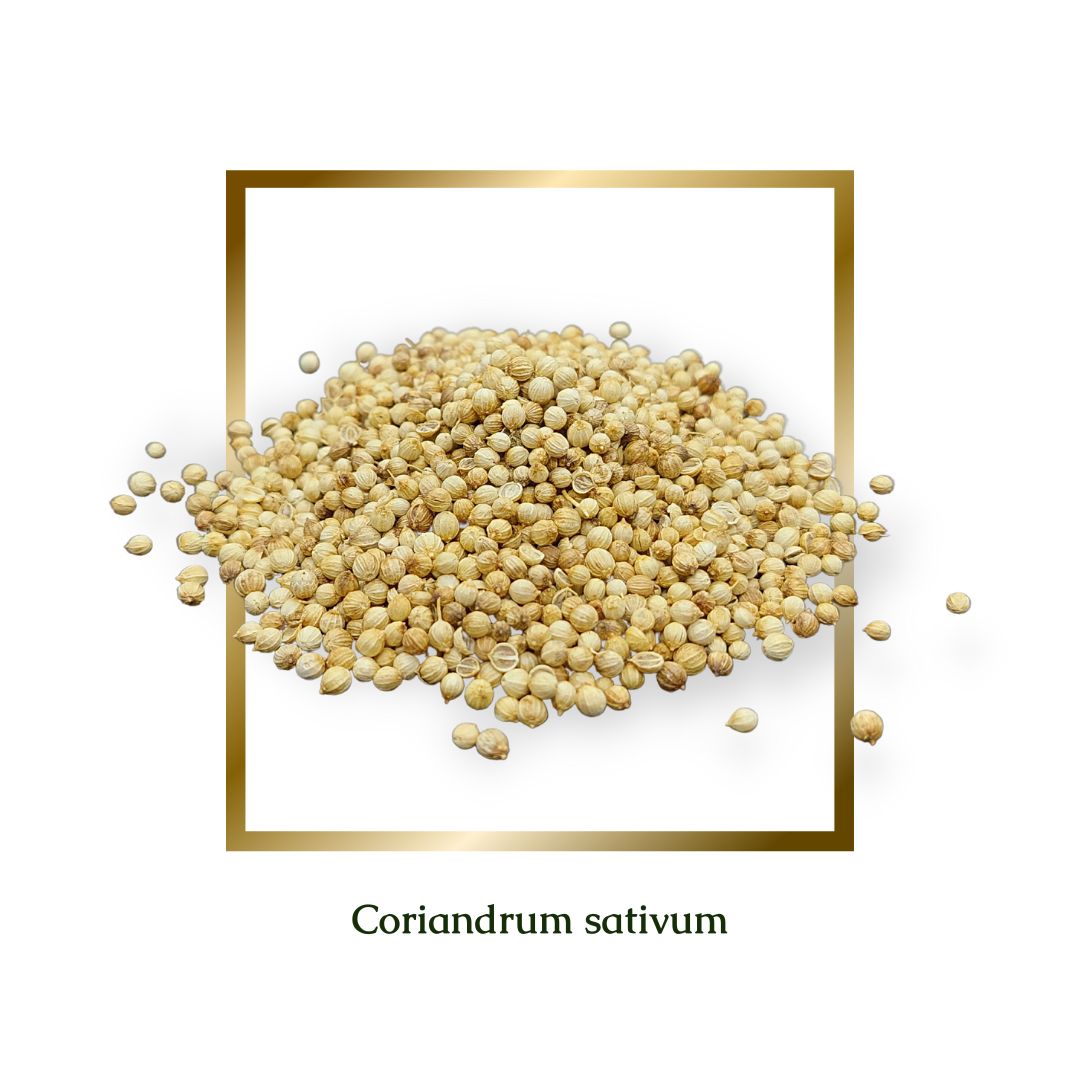
Coriander Seeds (Coriandrum Sativum)
Reference: ResearchGate: Nutritional and medicinal aspects of coriander (Coriandrum sativum).
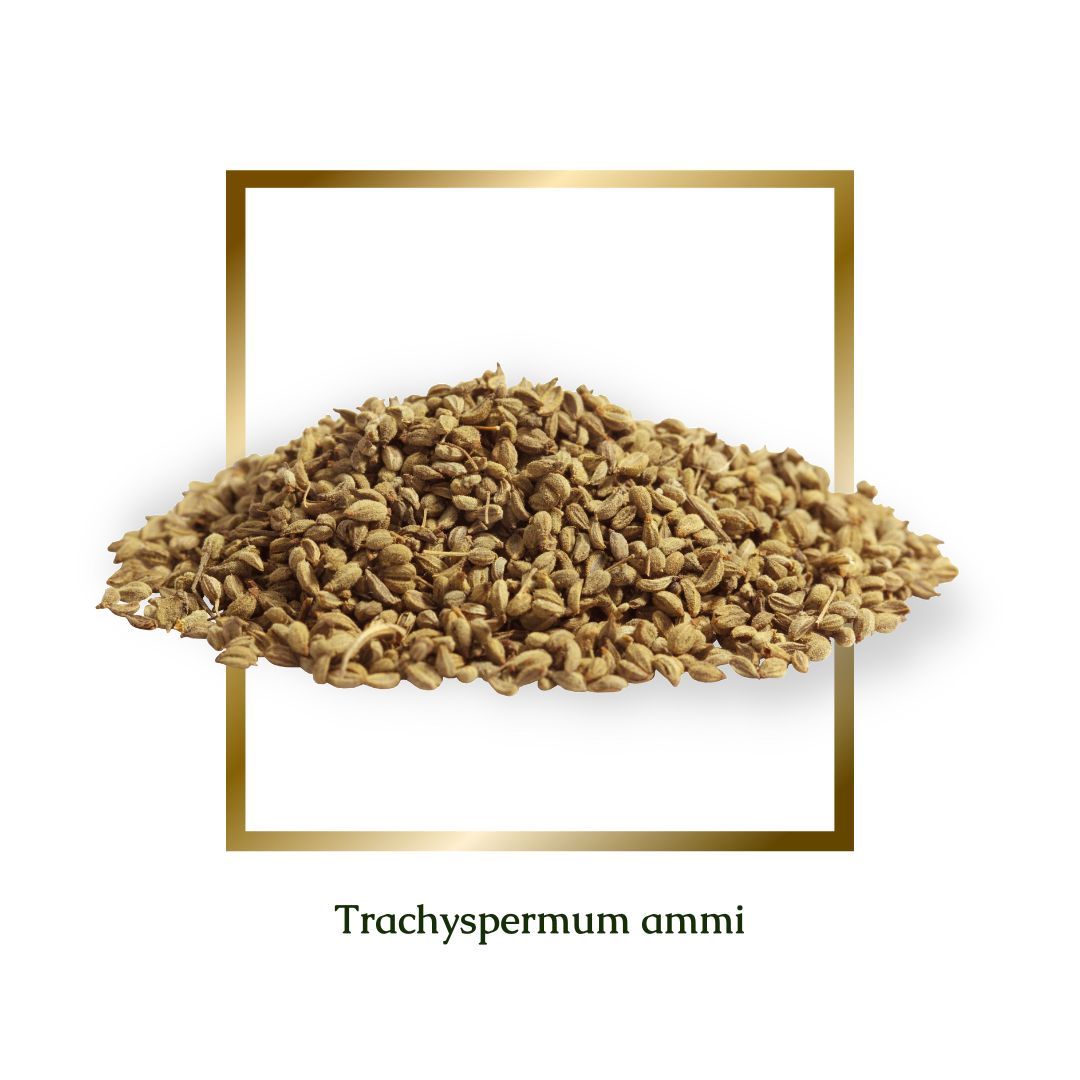
Carom Seeds (Trachycpermum Ammi)
Reference: ResearchGate: Health Benefits of Carom Seeds.

Fennel (Foeniculum Vulgare)
Reference: Global Journal of Pharmacy & Pharmaceutical Sciences
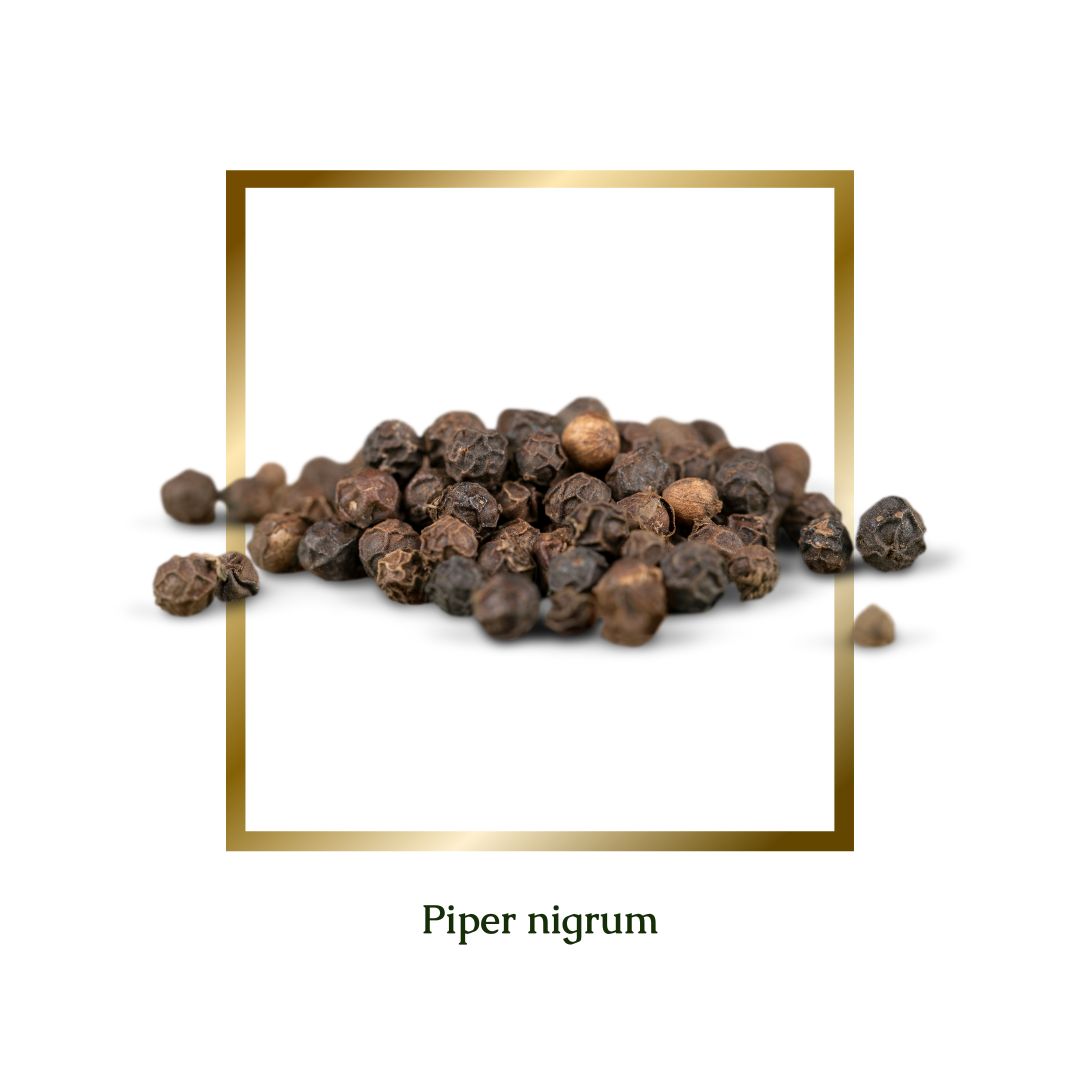
Black Pepper (Piper Nigrum)
Reference: ResearchGate: Black Pepper and Health Claims: A Comprehensive Treatise.
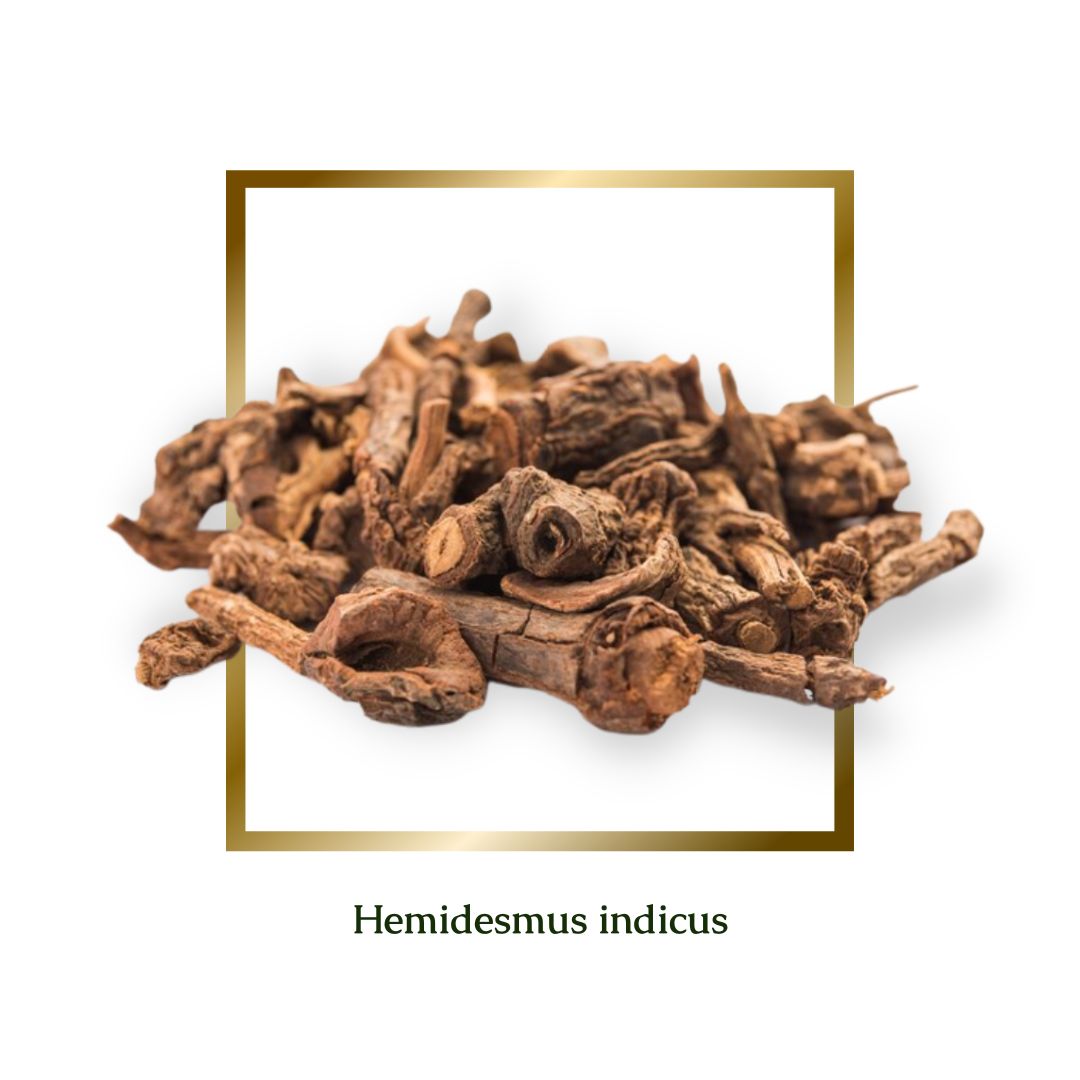
Indian Sarsaparilla (Hemidesmus Indicus)
Reference: ResearchGate: Recent progress in research on ethnobotany, phytochemistry and pharmacology.
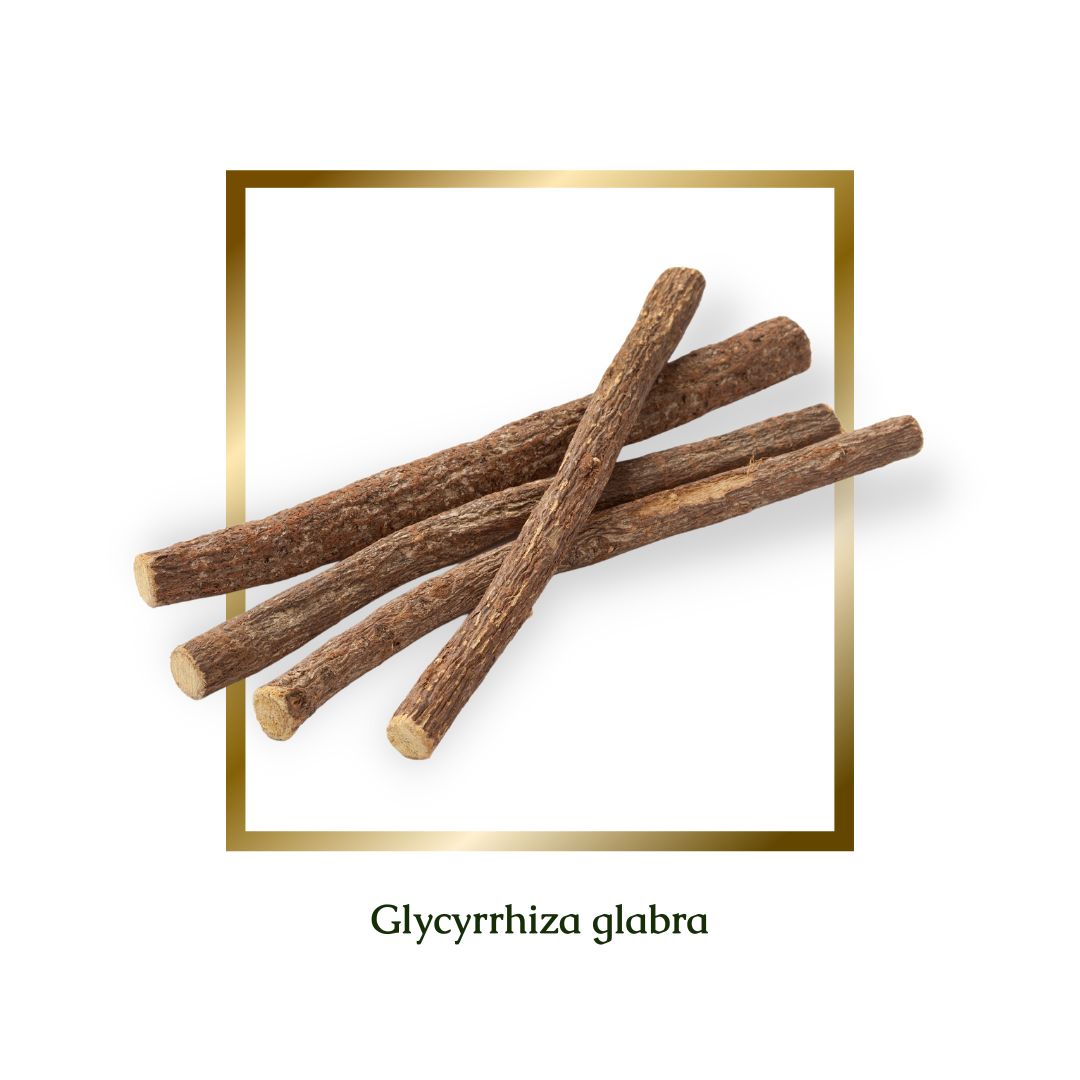
Liquorice (Glycyrrhiza Glabra)
Reference: ScienceDirect: Native Medicines and Cardiovascular Toxicity.

Cinnamon (Cinnamomum Zeylanicum)
Reference: US National Library of Medicine: Mystic powers of a minute ingredient.
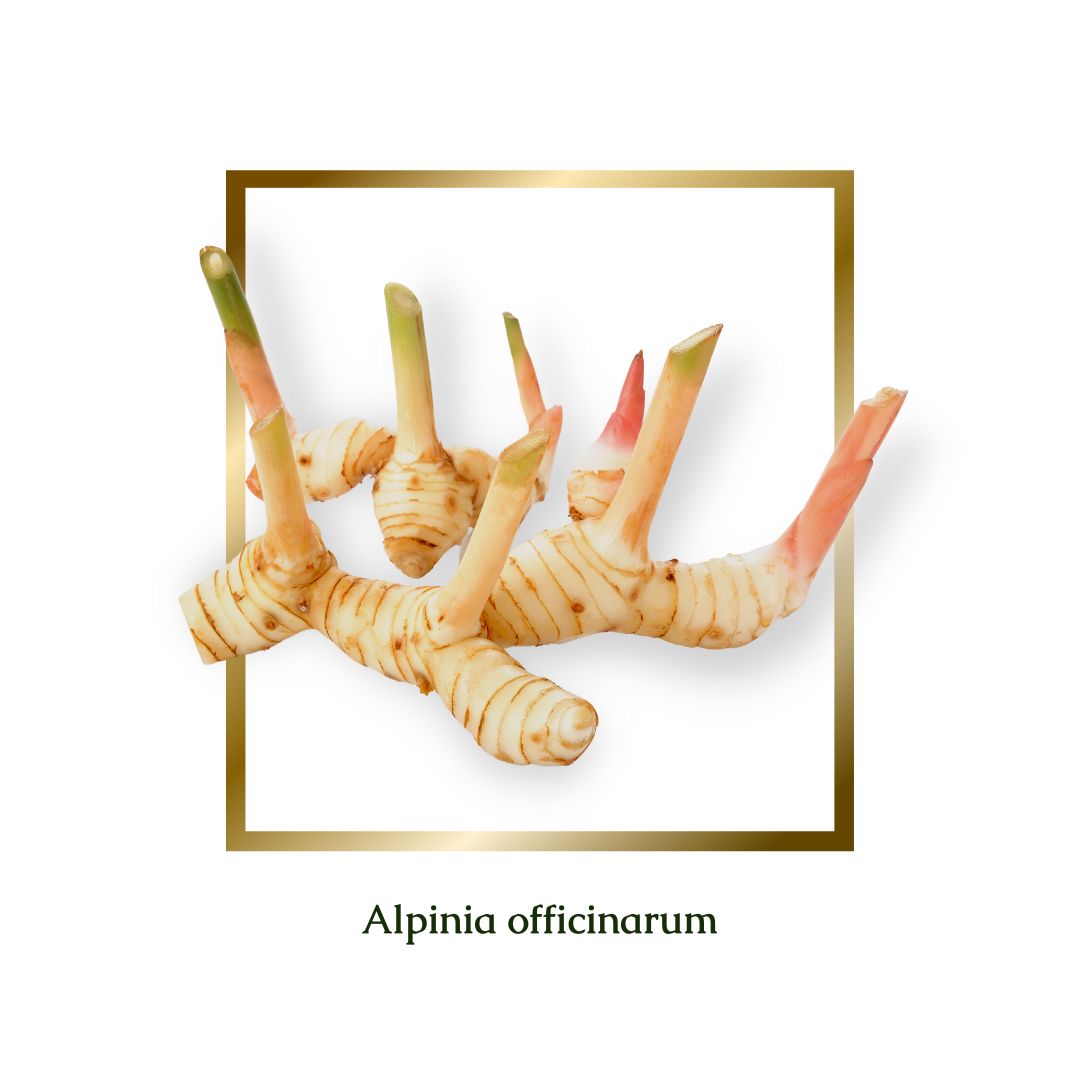
Lesser Galangal (Alpinia Officinarum)
Reference: ScienceDirect: A Review of the Botany, Phytochemical, and Pharmacological Properties of Galangal.
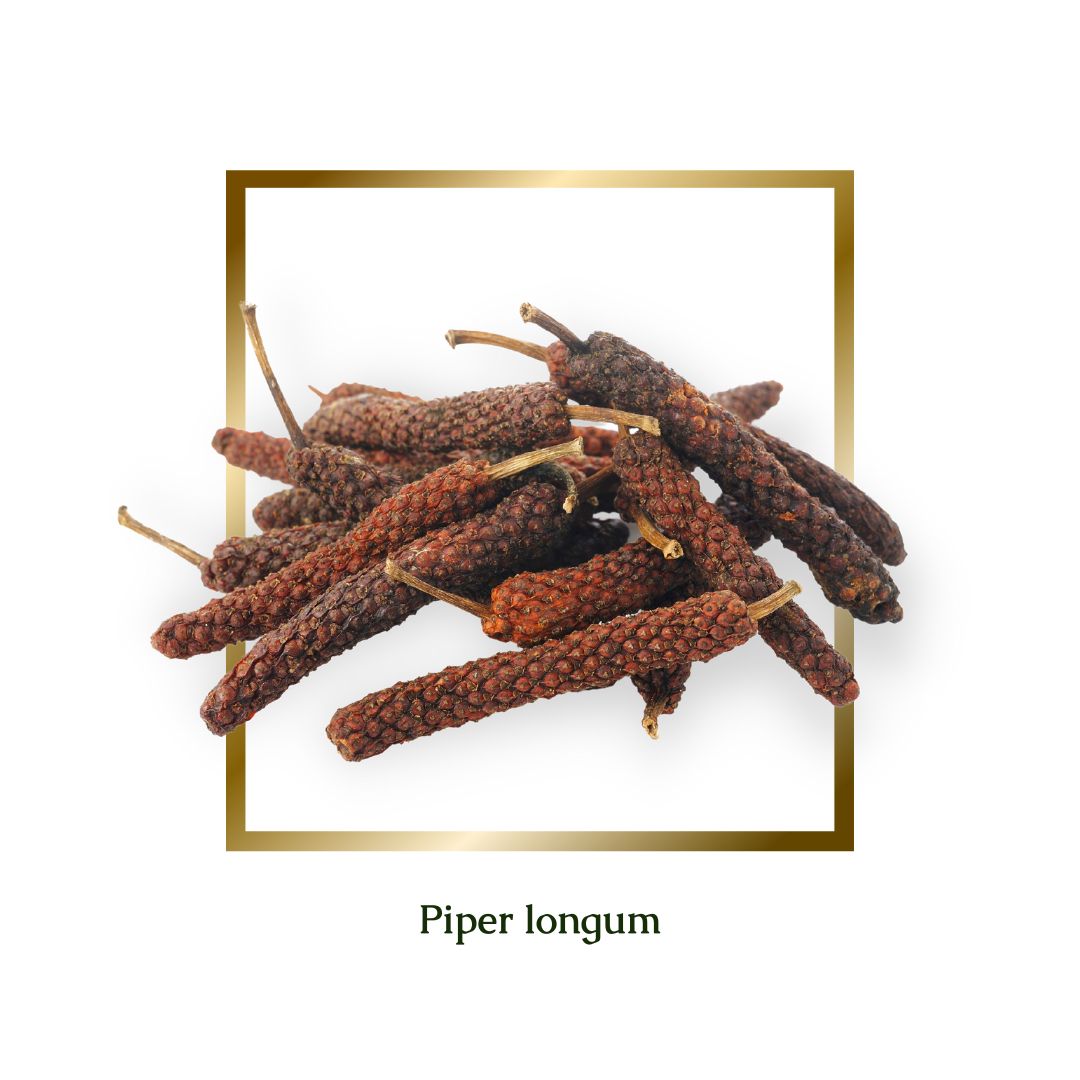
Long Pepper (Piper Longum)
Reference: ResearchGate: Overview for Various Aspects of the Health Benefits of Piper Longum.
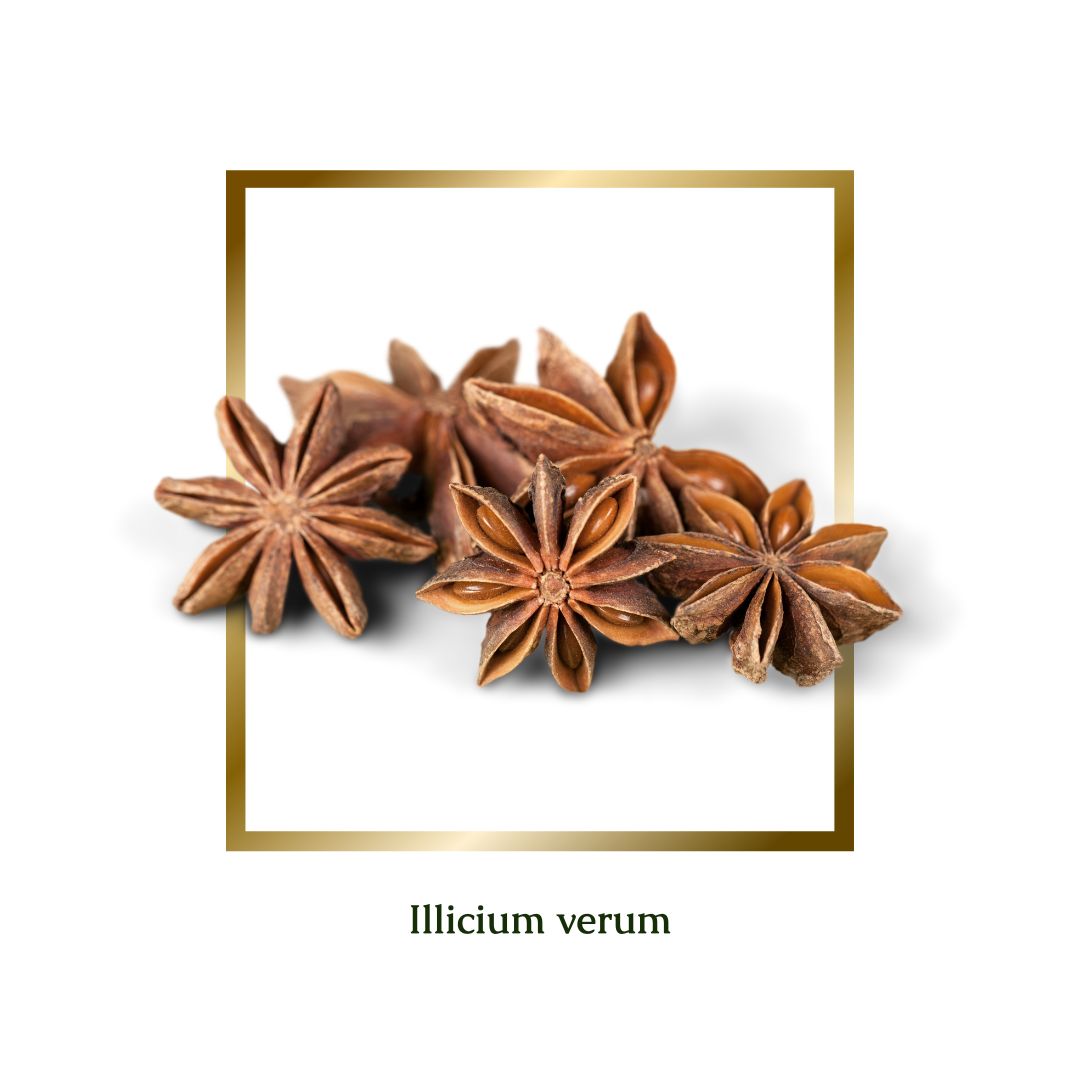
Star Anise (Illicium Verum)
Reference: ResearchGate: Star Anise: A review on benefits, biological activities and potential uses.
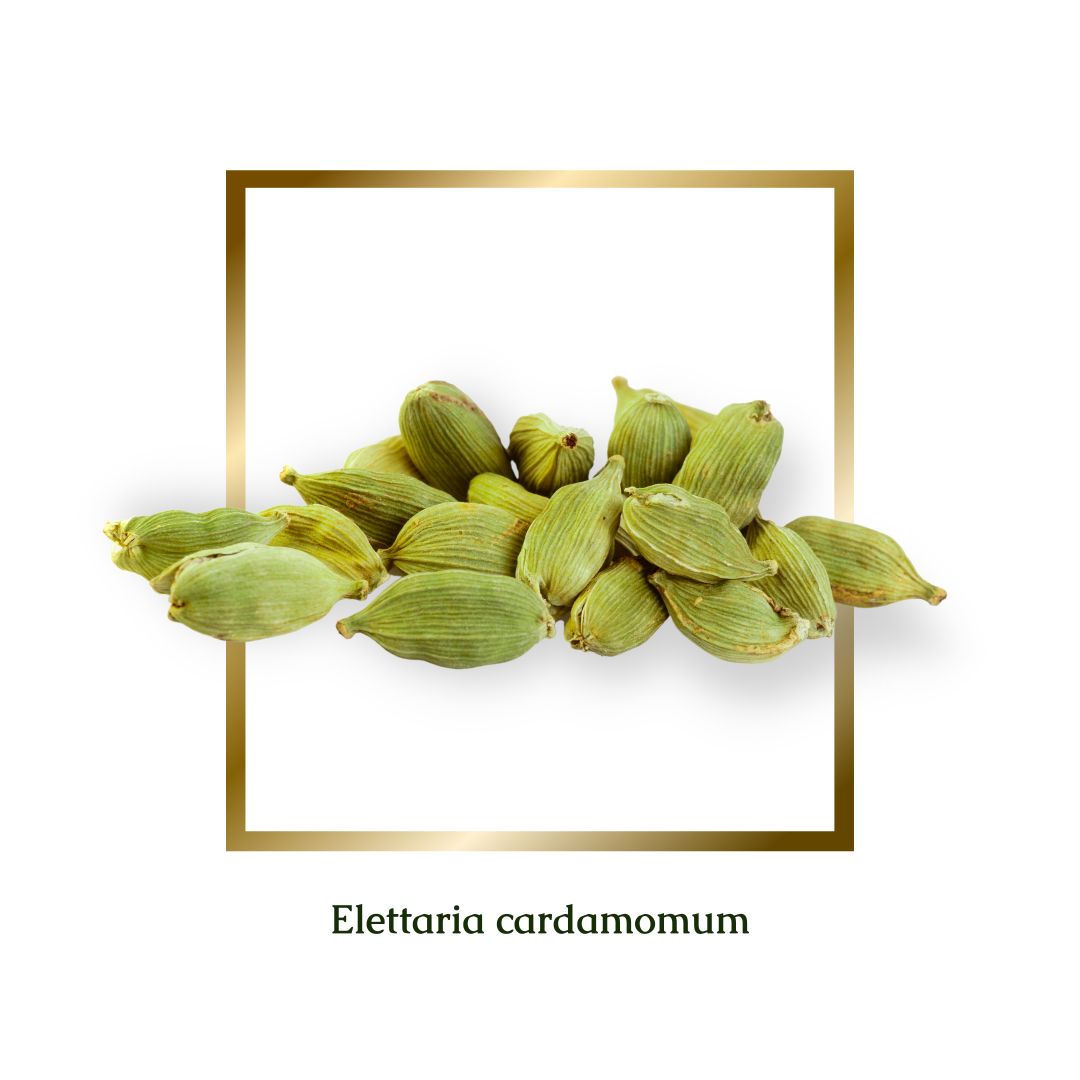
Cardamom (Elettaria Cardamomum)
Reference: ResearchGate: Medicinal properties of Elettaria Cardamomum.
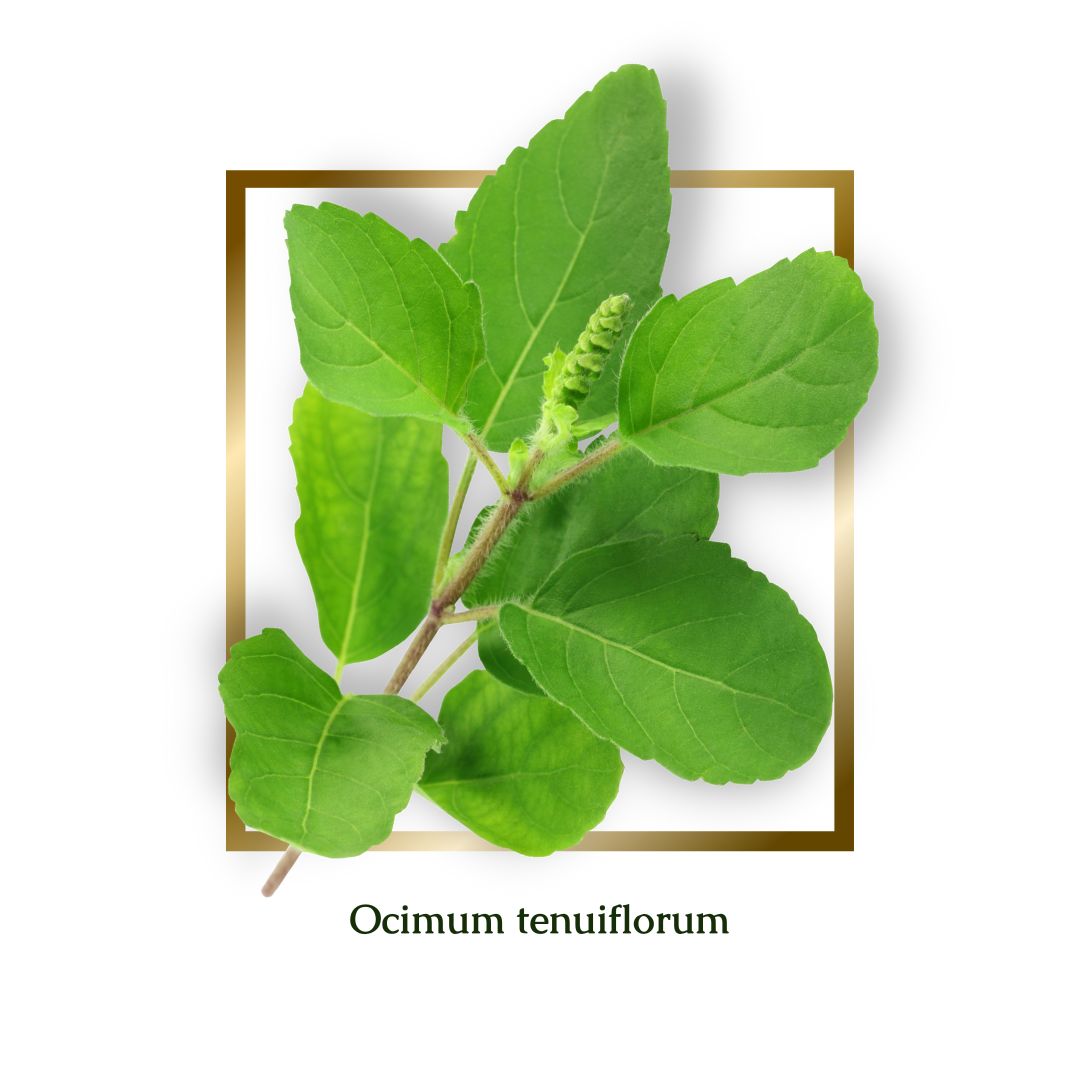
Holy Basil Leaves (Ocimum Tenuiflorum)
Reference: ResearchGate: Therapeutic benefits of Holy Basil in general and oral medicine: A review.
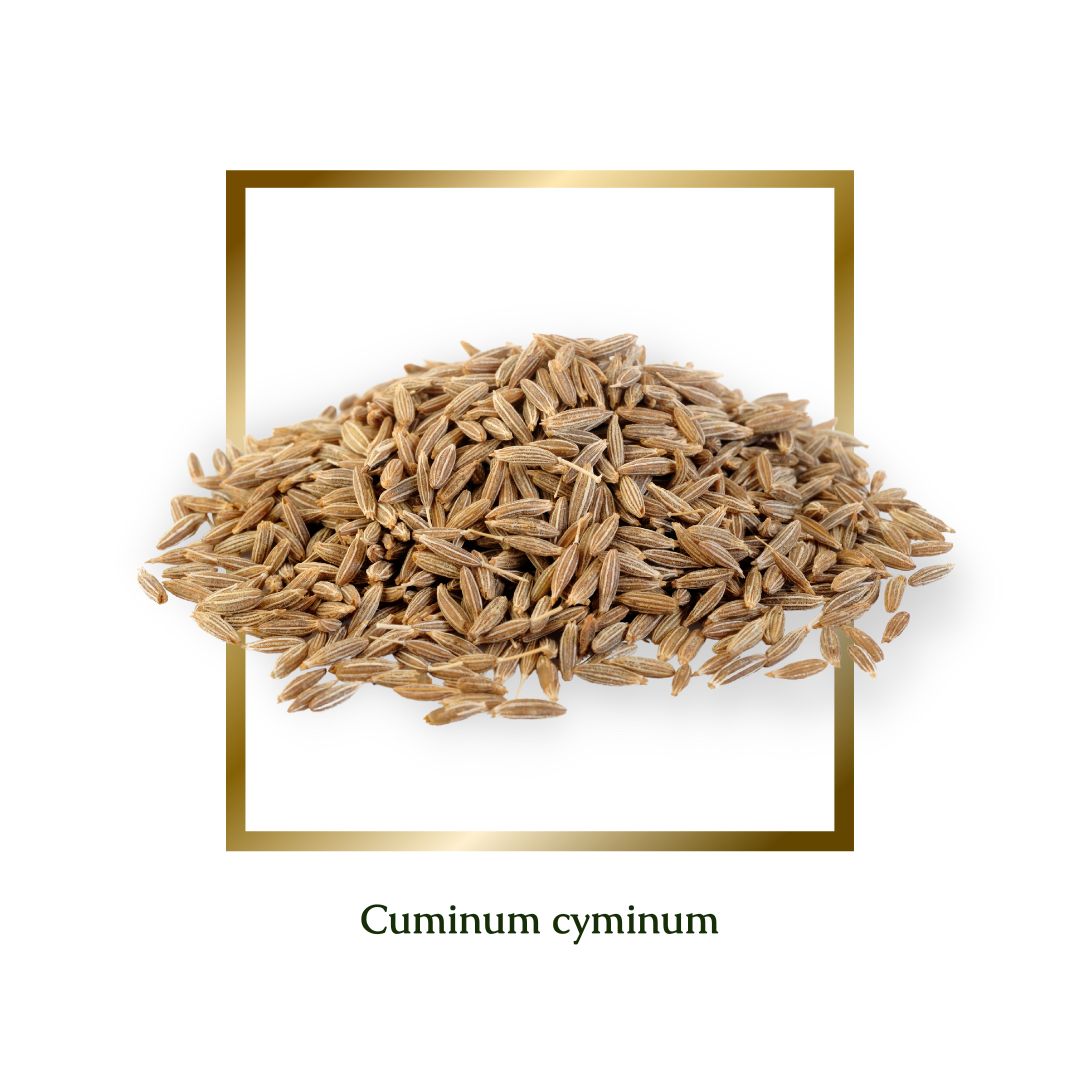
Cumin (Cuminum Cyminum)
Reference: Journal of Chemical and Pharmaceutical Research, 2017, 9(9):180-187
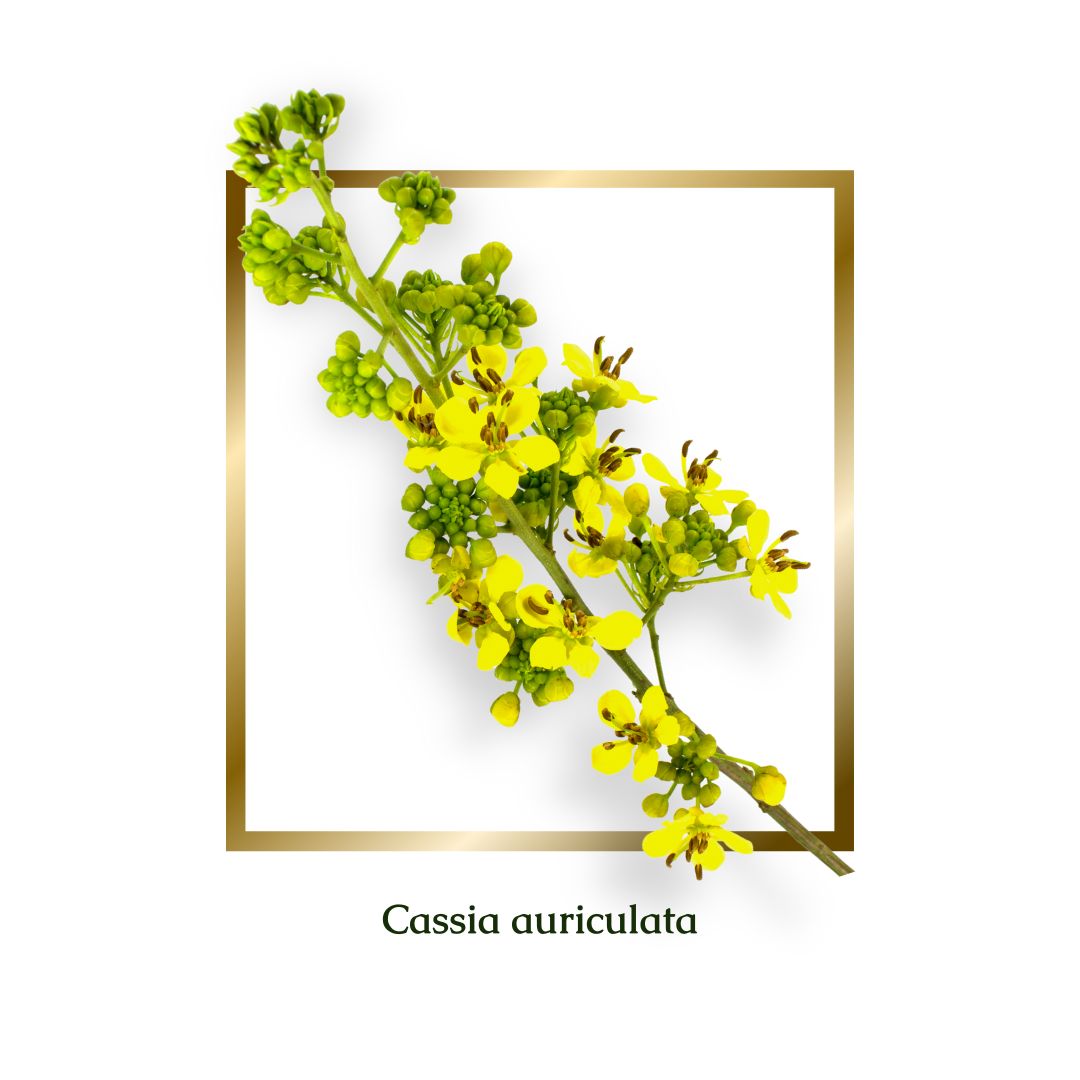
Avaram Senna (Cassia Auriculata)
Reference: A Review on Cassia auriculata (Department of Pharmacology, National College of Pharmacy, Balraj Urs Road, Shivamogga (Dist) 577201)
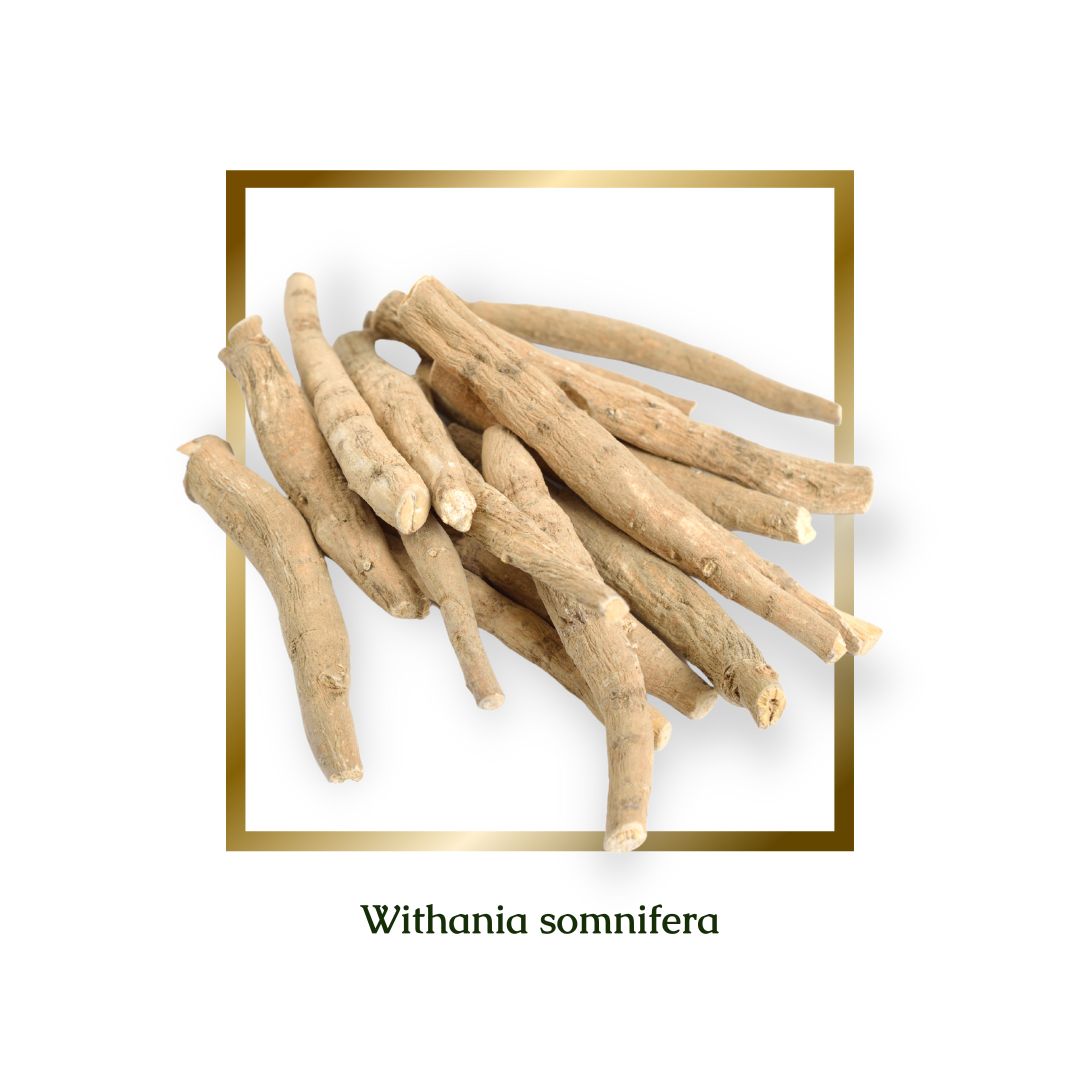
Indian Ginseng/Winter Cherry (Withania Somnifera)
Reference: ResearchGate: Examining the effect of Withania somnifera supplementation on muscle strength and recovery:
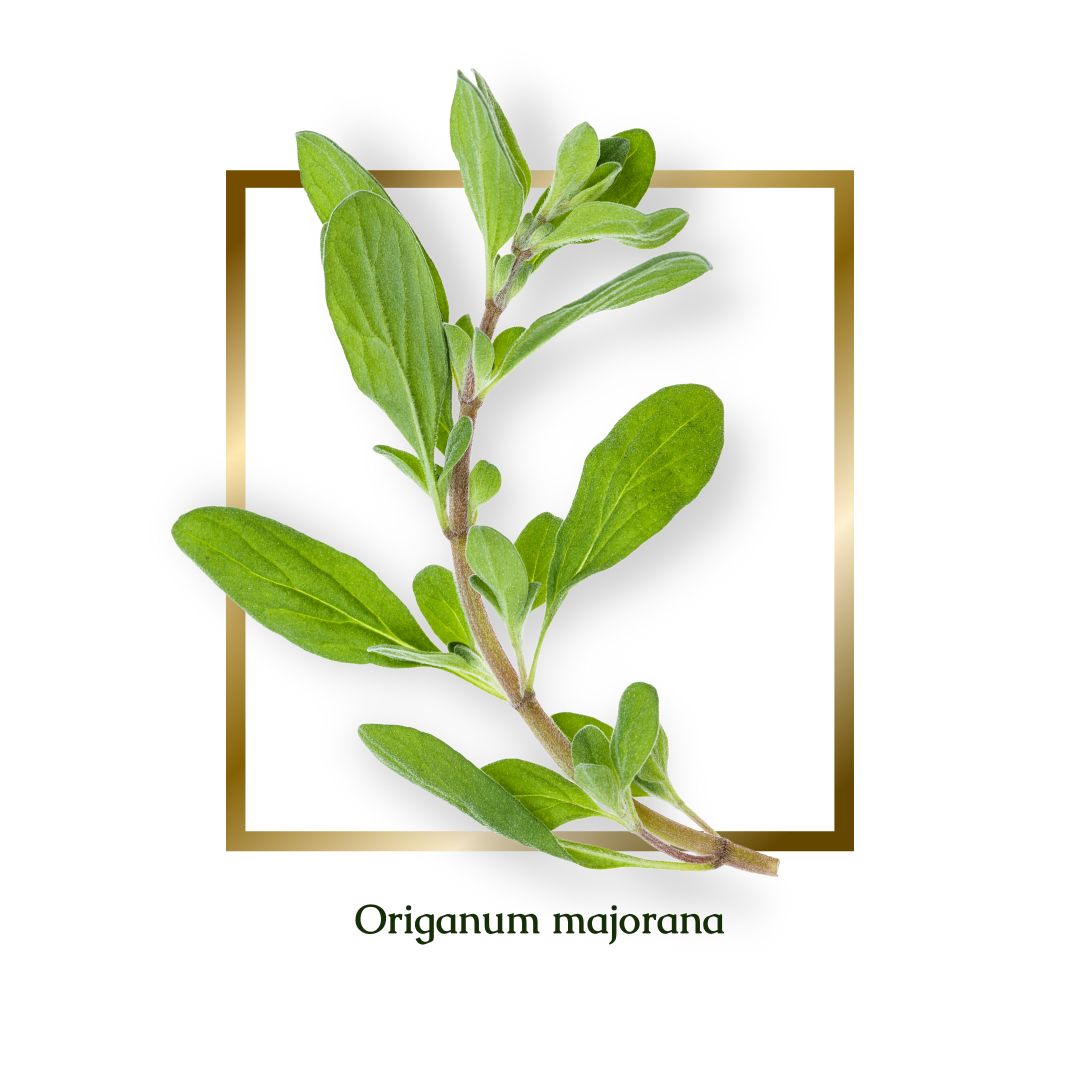
Sweet Marjoram (Origanum Majorana)
Reference: US National Library of Medicines: A Review of Ethnopharmacology, Phytochemistry, and Biological Activities.

Nutmeg (Myristica Fragrans)
Reference: Scientia Agriculturae: Health and Nutritional Benefits of Nutmeg.

Turmeric (Curcuma Longa)
Reference: Curcumin: A Review of its Effects on Human Health.
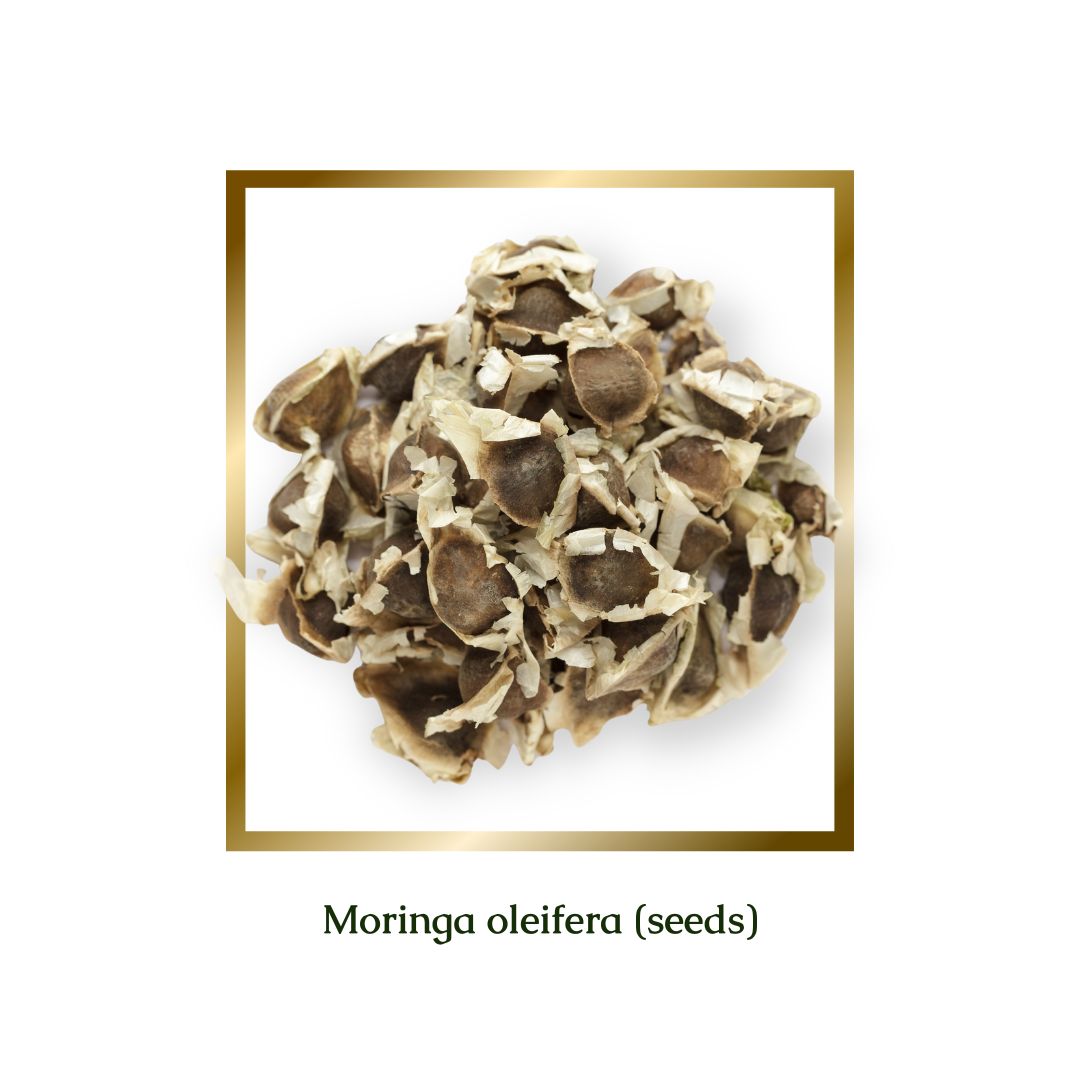
Drumstick seeds (Moringa Oleifera)
Reference: A Review of benefits of drumstick seeds for health, skin, and hair.
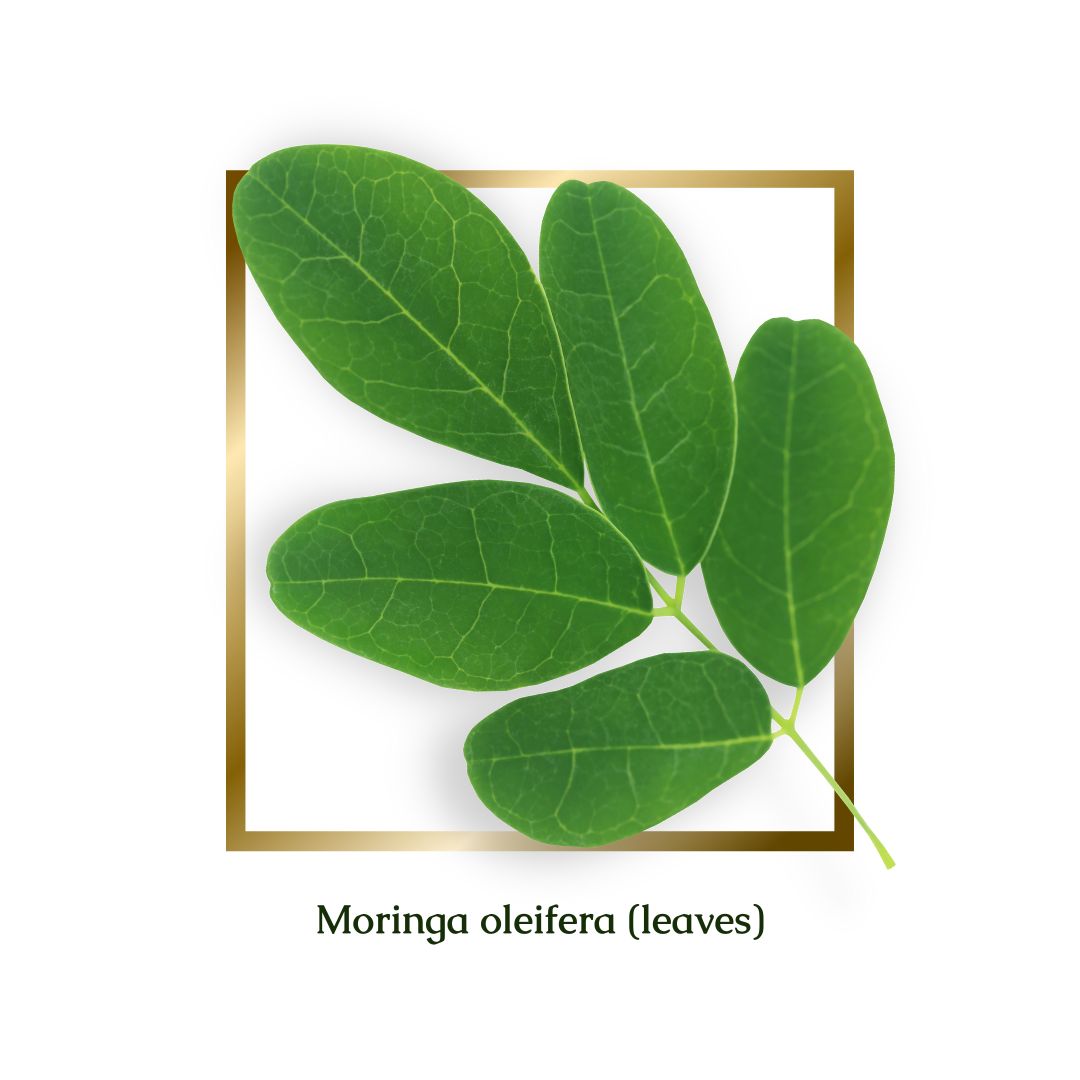
Drumstick leaves (Moringa Oleifera)
Reference: A review on nutritive importance and its medicinal application.
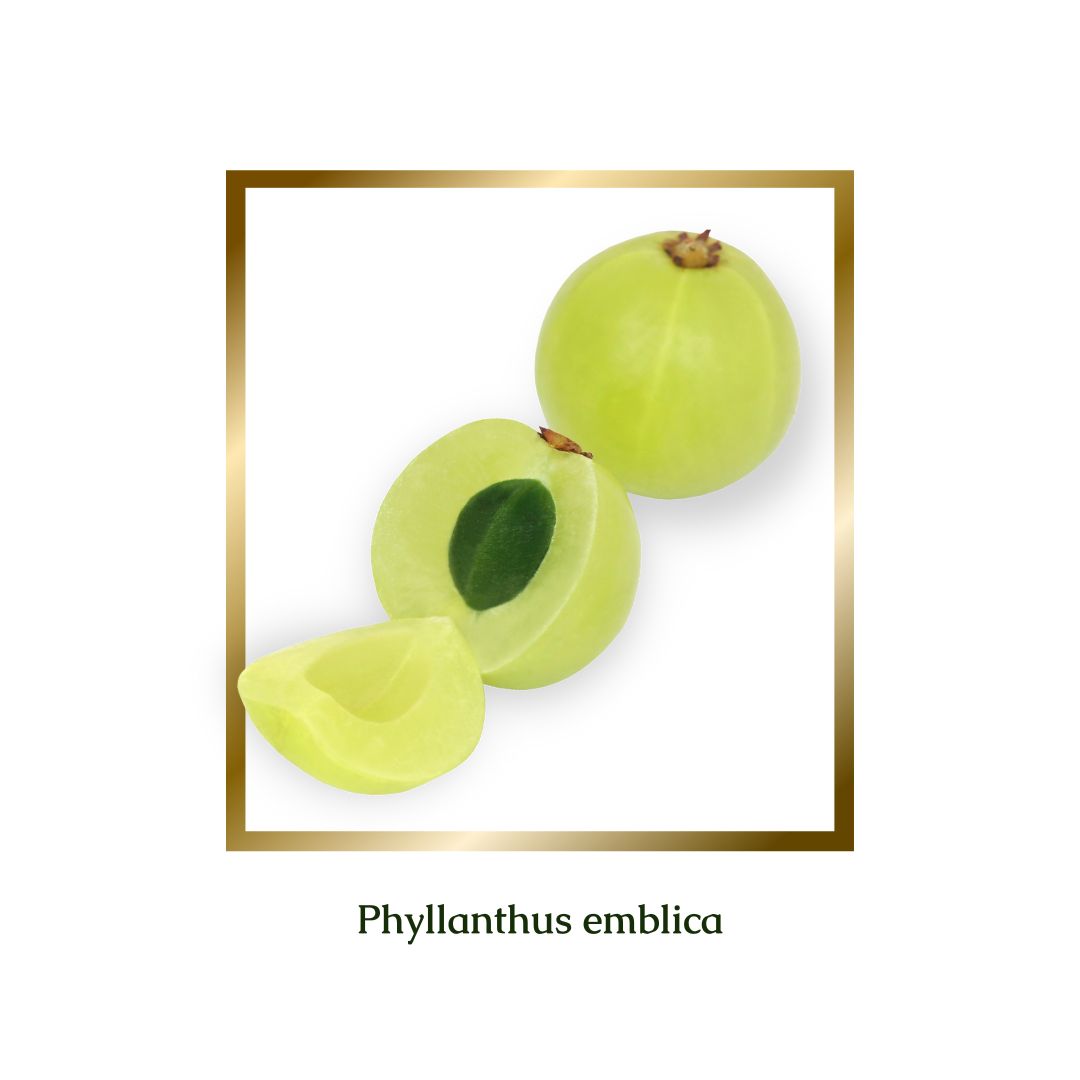
Emblic Myrobalan (Phyllanthus Emblica)
Reference: ResearchGate: Health benefits of amla or Indian gooseberry fruit (Phyllanthus emblica).
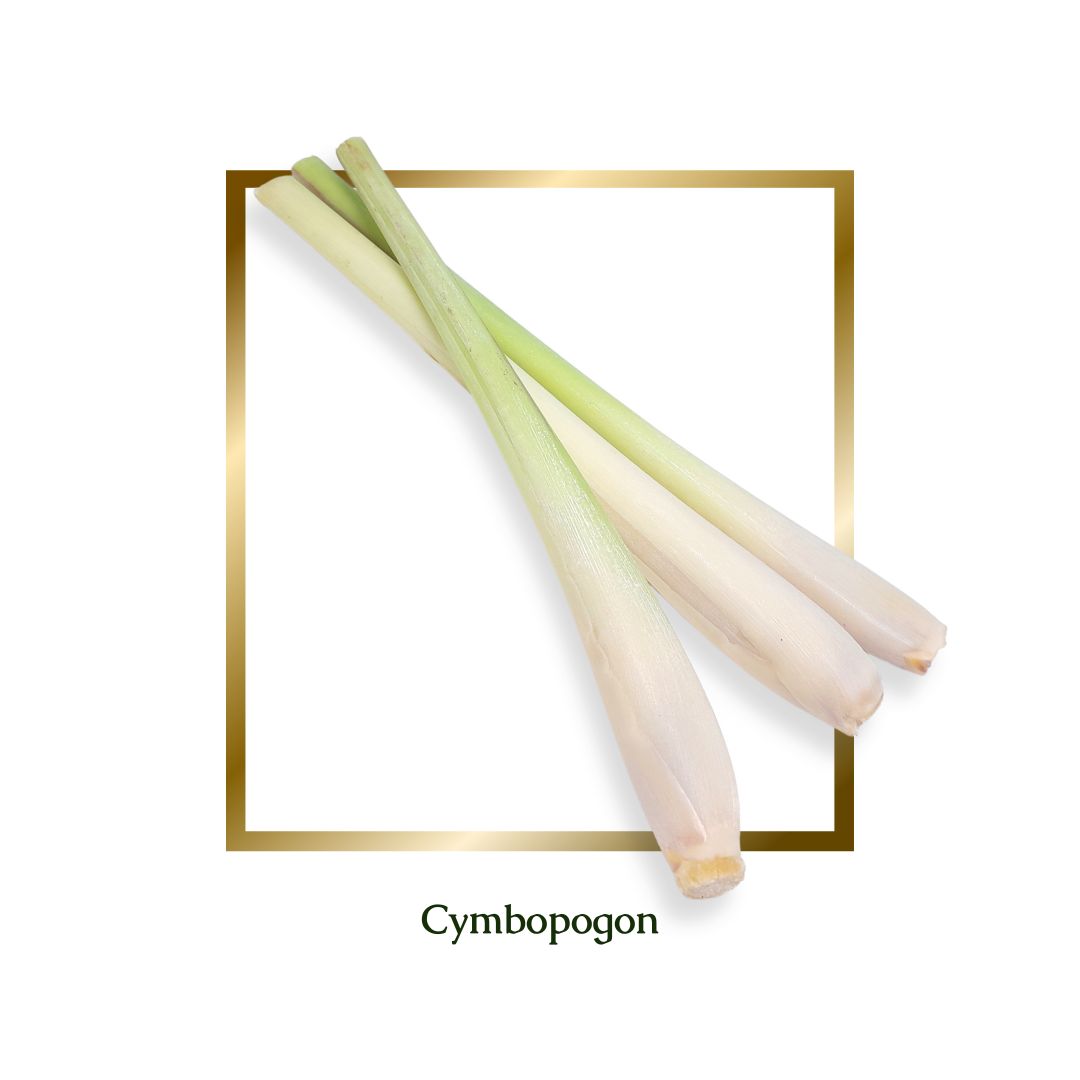
Lemongrass (Cymbopogon)
Reference: ReviewGate: Therapaeutic benefits of lemongrass.
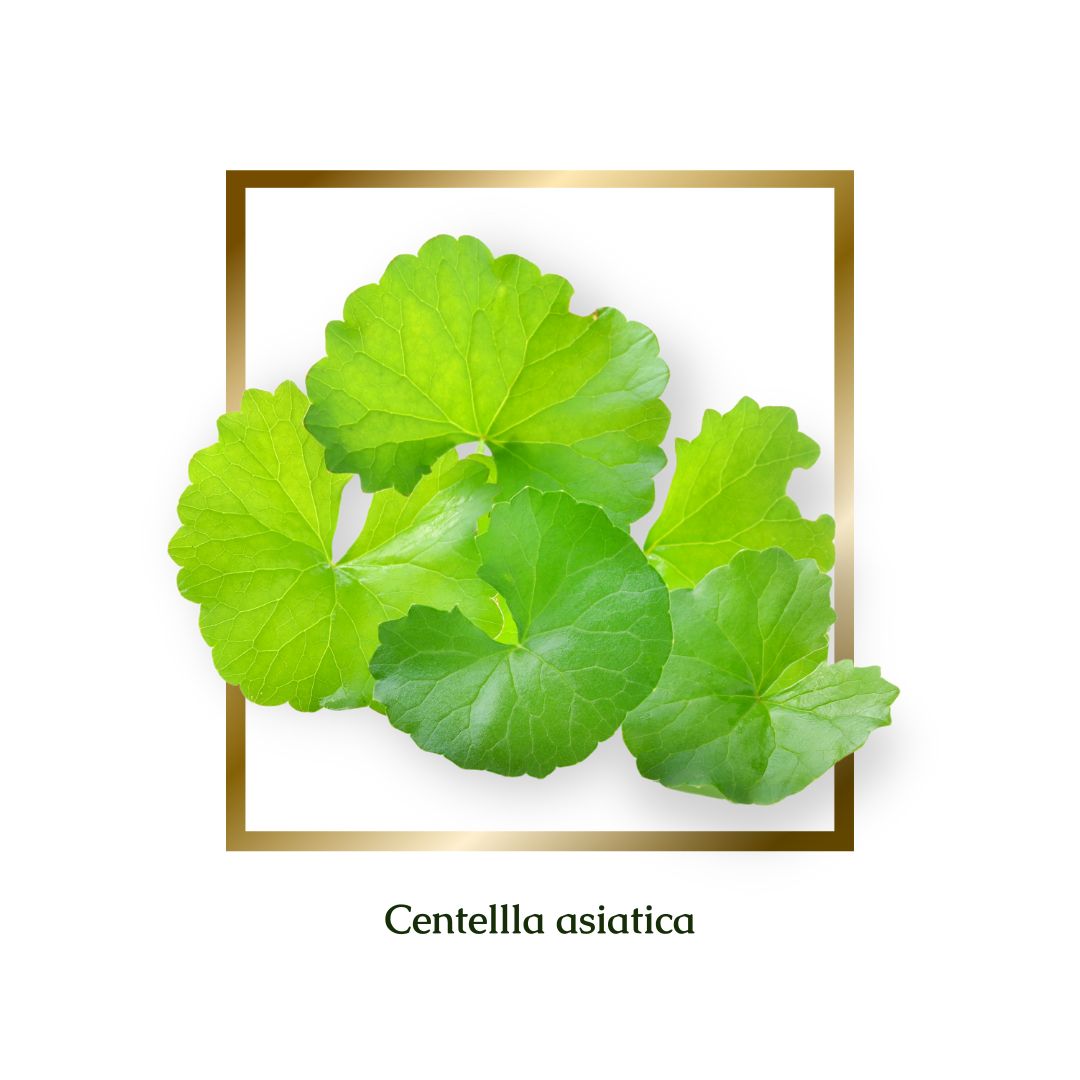
Centella (Centella Asiatica)
Reference: Pharmacological Review on Centalla asiatica: A Potential Herbal Cure-all.
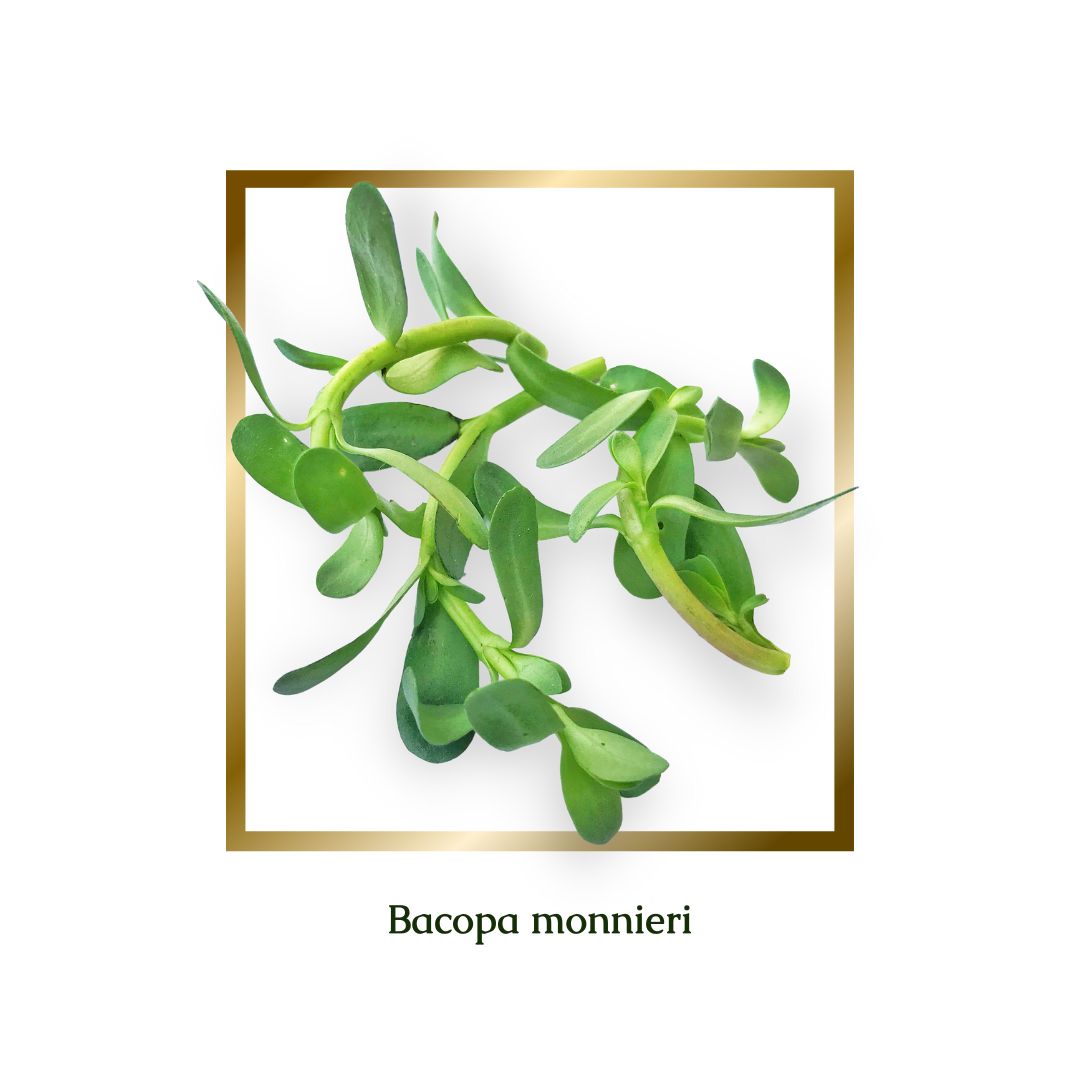
Bacopa (Bacopa Monnieri)
Reference: Effects of 12-Week Bacopa monnieri Consumption on Attention, Cognitive Processing, Working Memory, and Functions of Both Cholinergic and Monoaminergic Systems in Healthy Elderly Volunteers
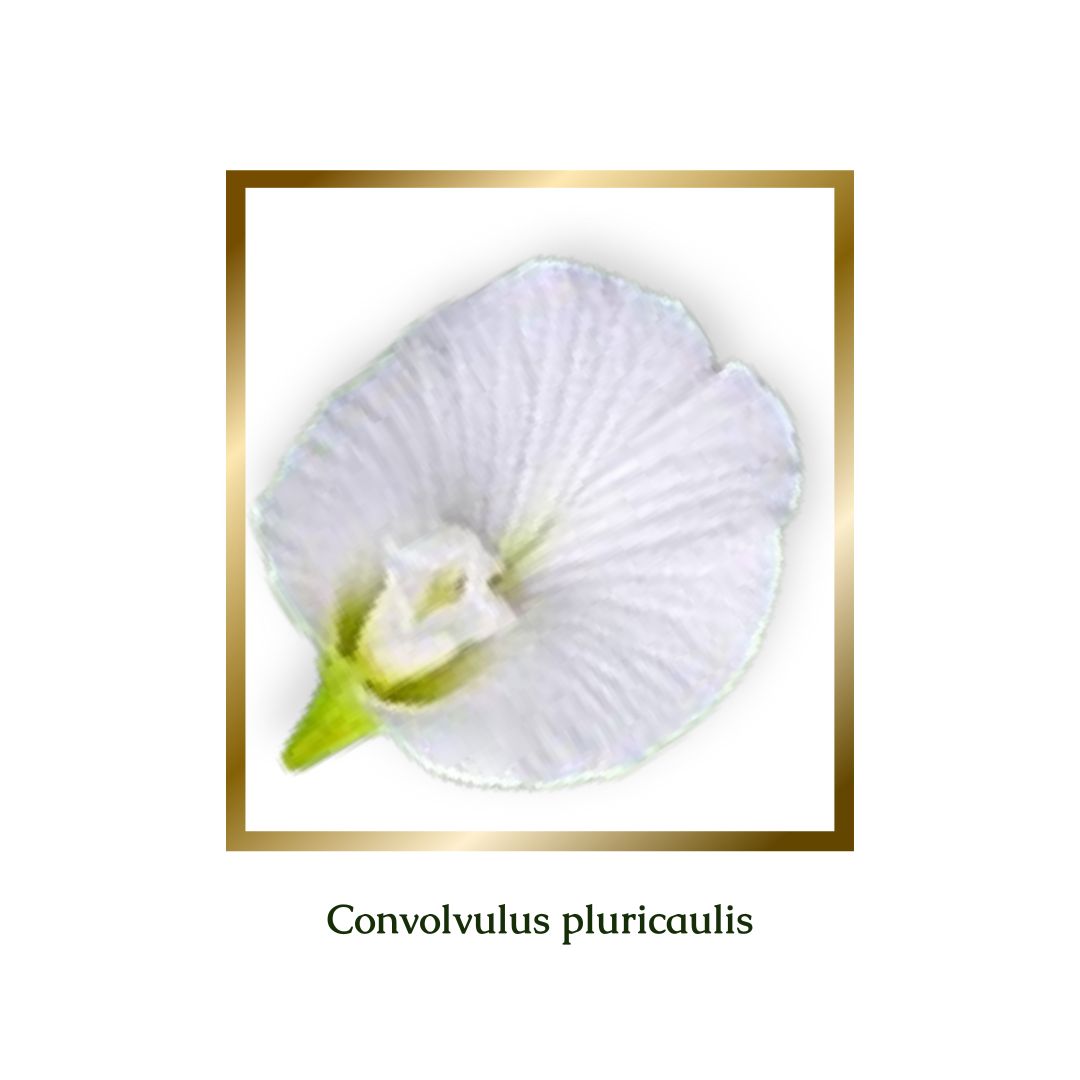
English Speedwheel / Shankhpushpi (Convolvulus Pluricaulis)
Reference: Journal of Advanced Pharmaceutical Technology & Research. (Reviewed by Neeraj K. Sethiya, Department of Pharmacy).
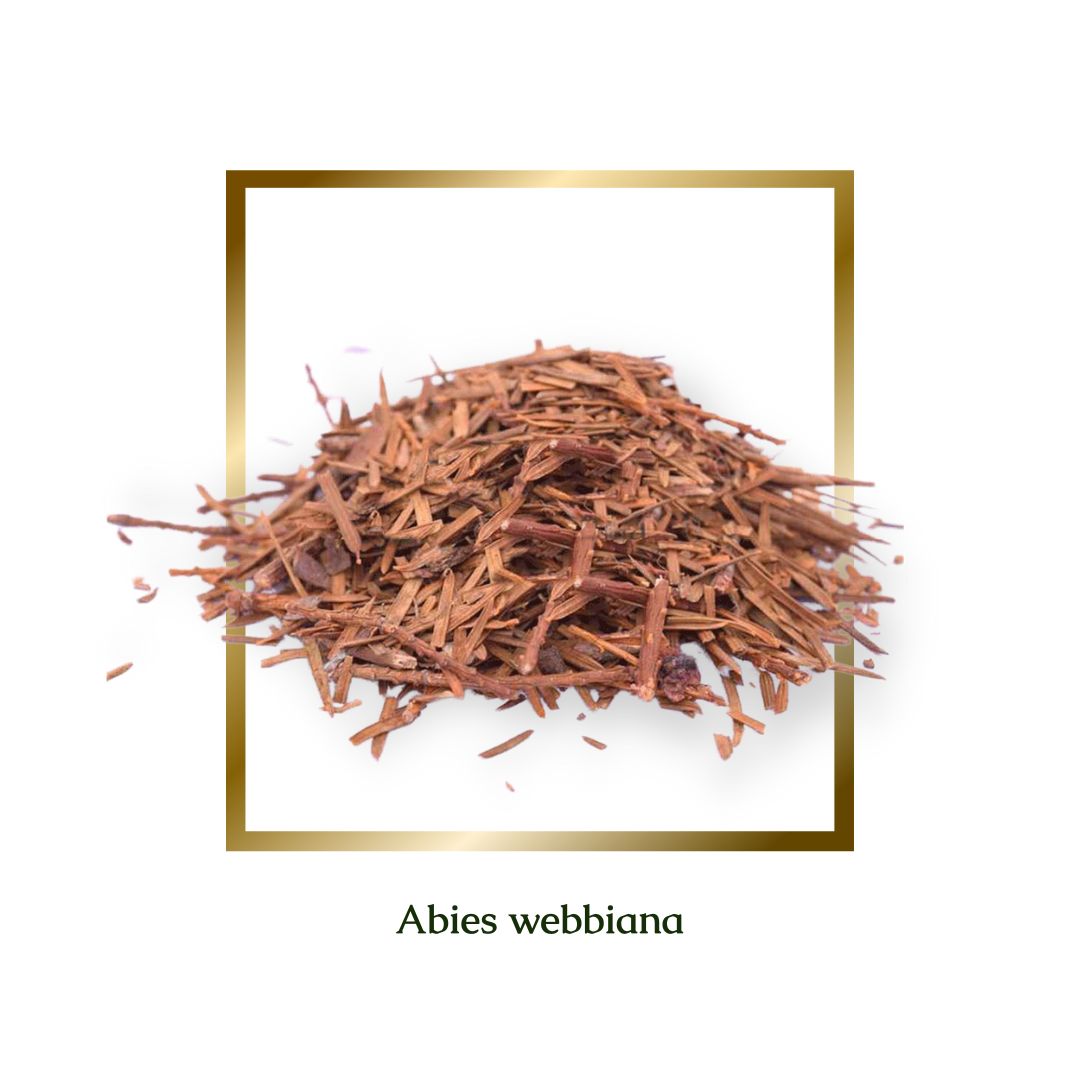
Silver Fir (Abies Webbiana)
Reference: ScienceDirect: 3.21.3.4 Hydrodynamic Cavitation–Assisted Aqueous Extraction.
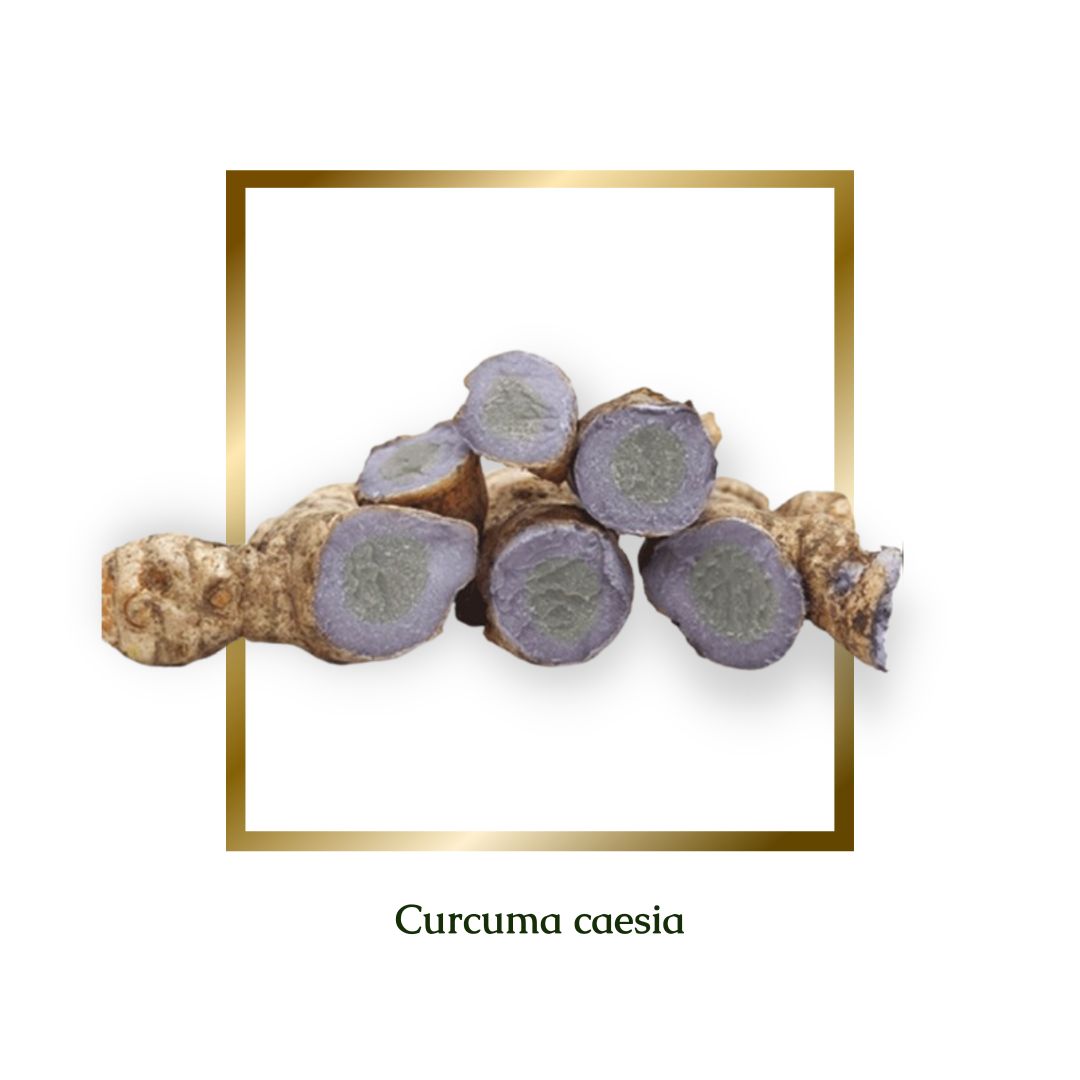
Black Turmeric (Curcuma Caesia)
Reference: ResearchGate: Medicinal properities of Black Turmeric.
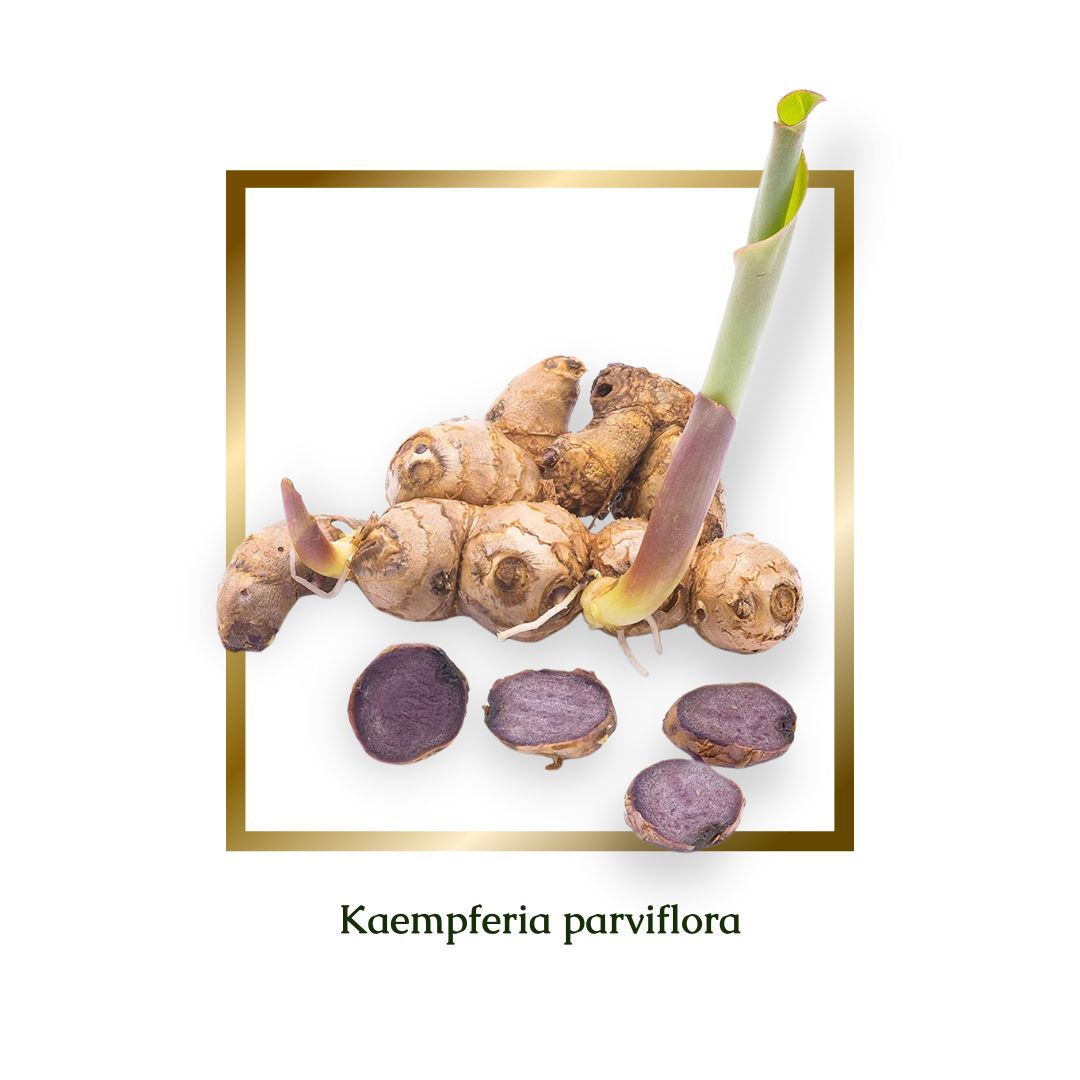
Black Ginger (Kaempferia Parviflora)
Reference: ResearchGate: Black ginger extract increases physical fitness performance and muscular endurance by improving inflammation and energy metabolism.
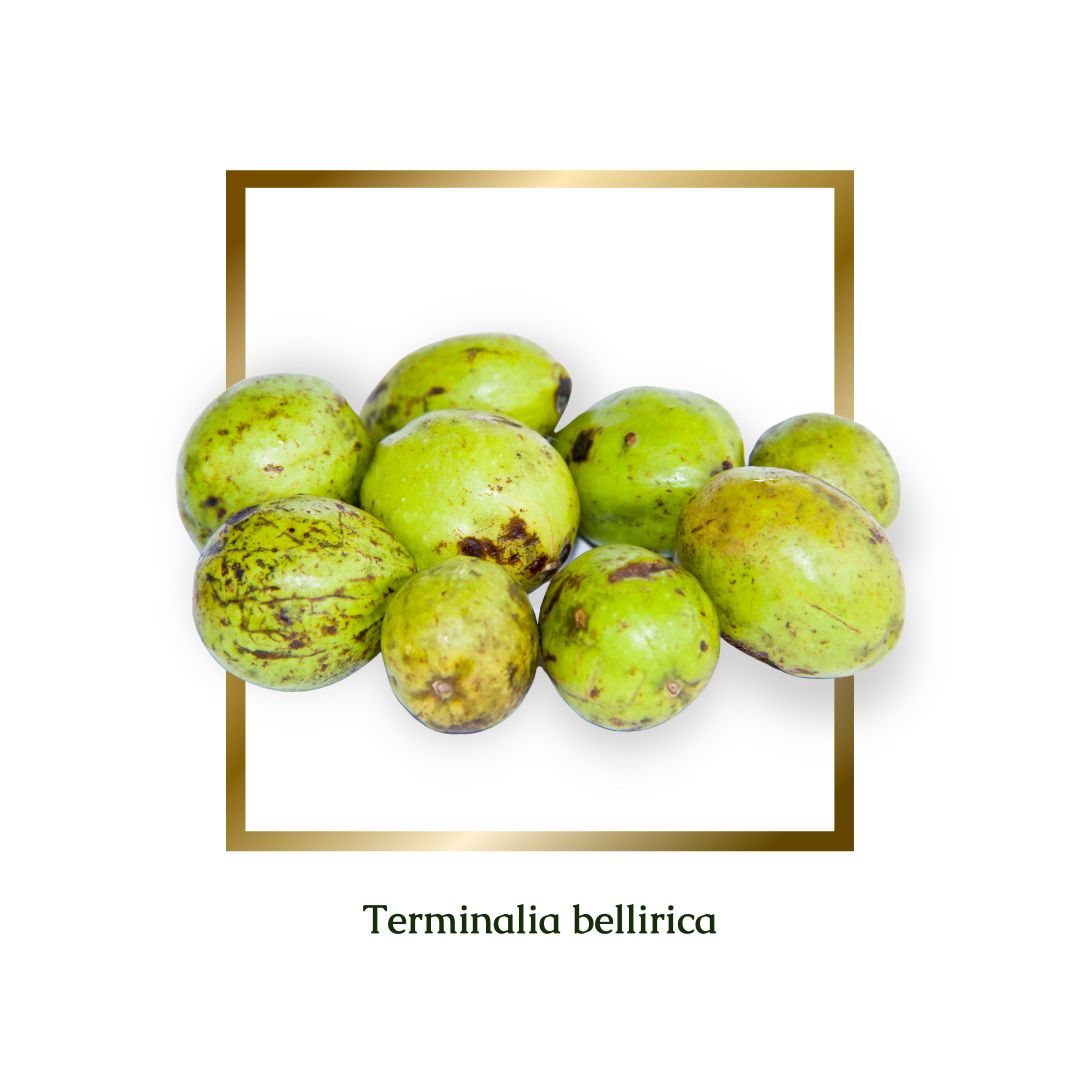
Belleric Myrobalan (Terminalia Bellirica)
Reference: ScienceDirect: A Review, Potential therapeutic applications for Terminalia chebula In Iranian traditional medicine.
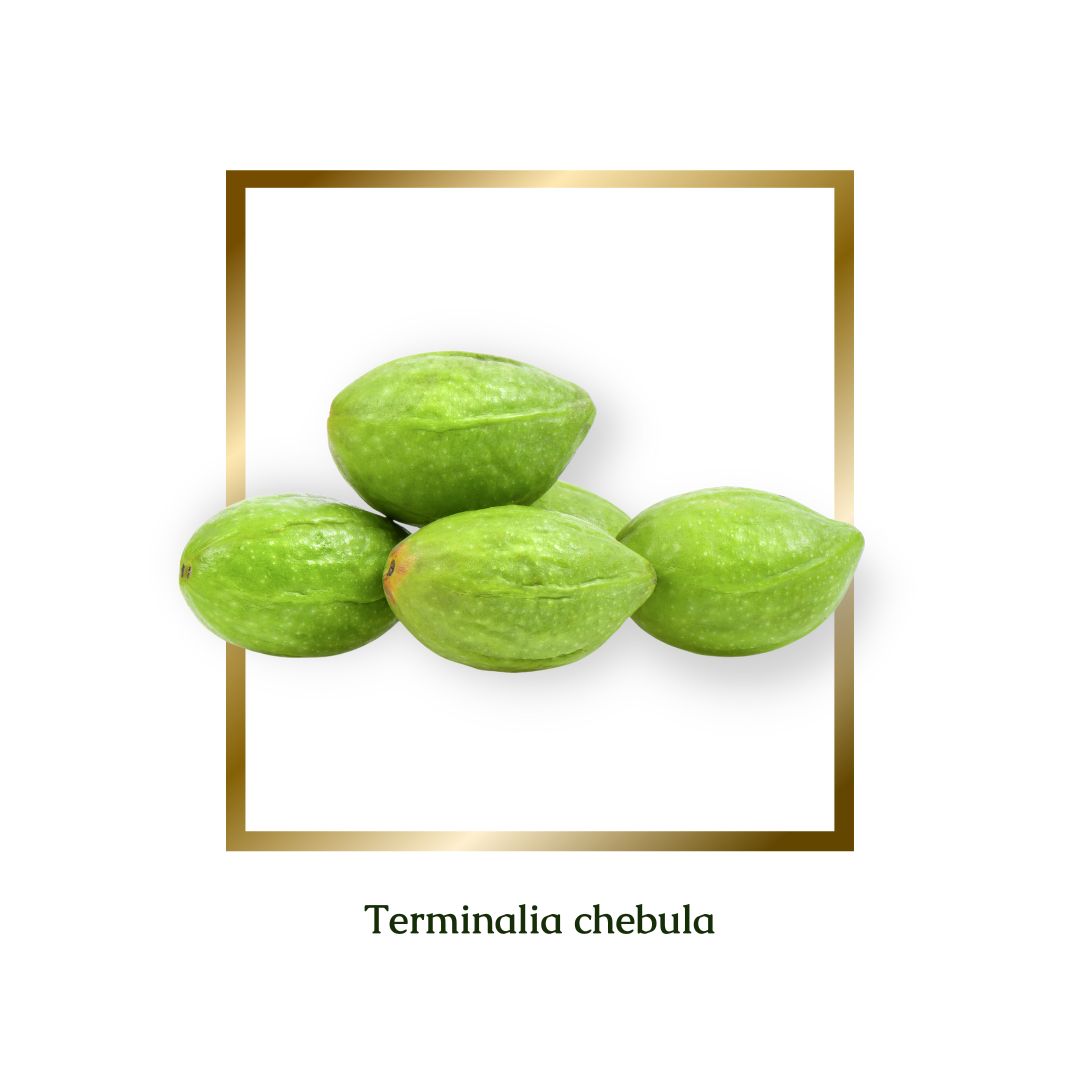
Chebulic Myrobalan (Terminalia Chebulic)
Reference: ScienceDirect: Nutritive value of the chebulic myrobalan
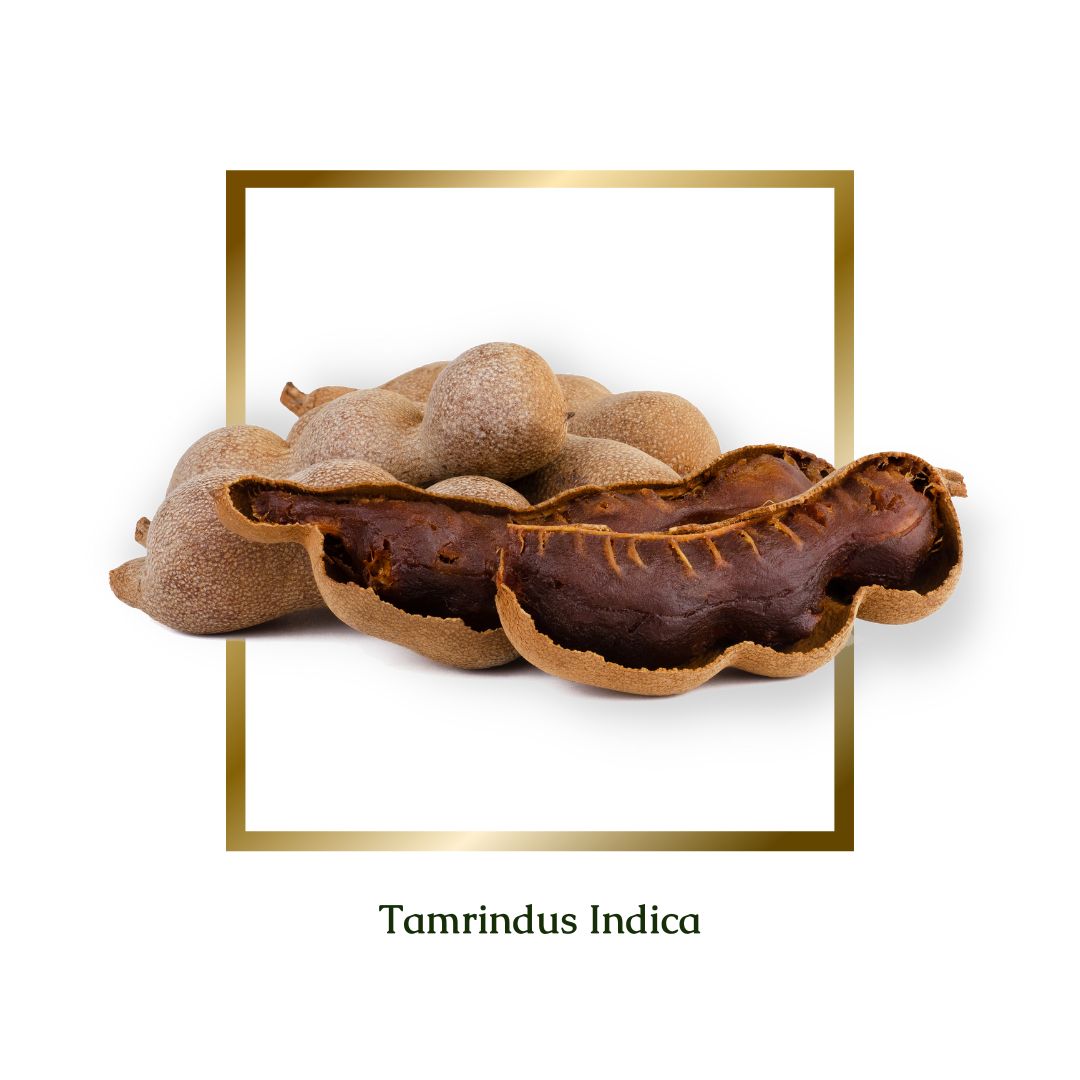
Tamarind (Tamarindus Indica)
Reference: Tamarind Seed (Tamarindus indica) Extract Ameliorates Adjuvant Induced Arthritis via Regulating the Mediators of Cartilage/Bone Degeneration, Inflammation and Oxidative Stress
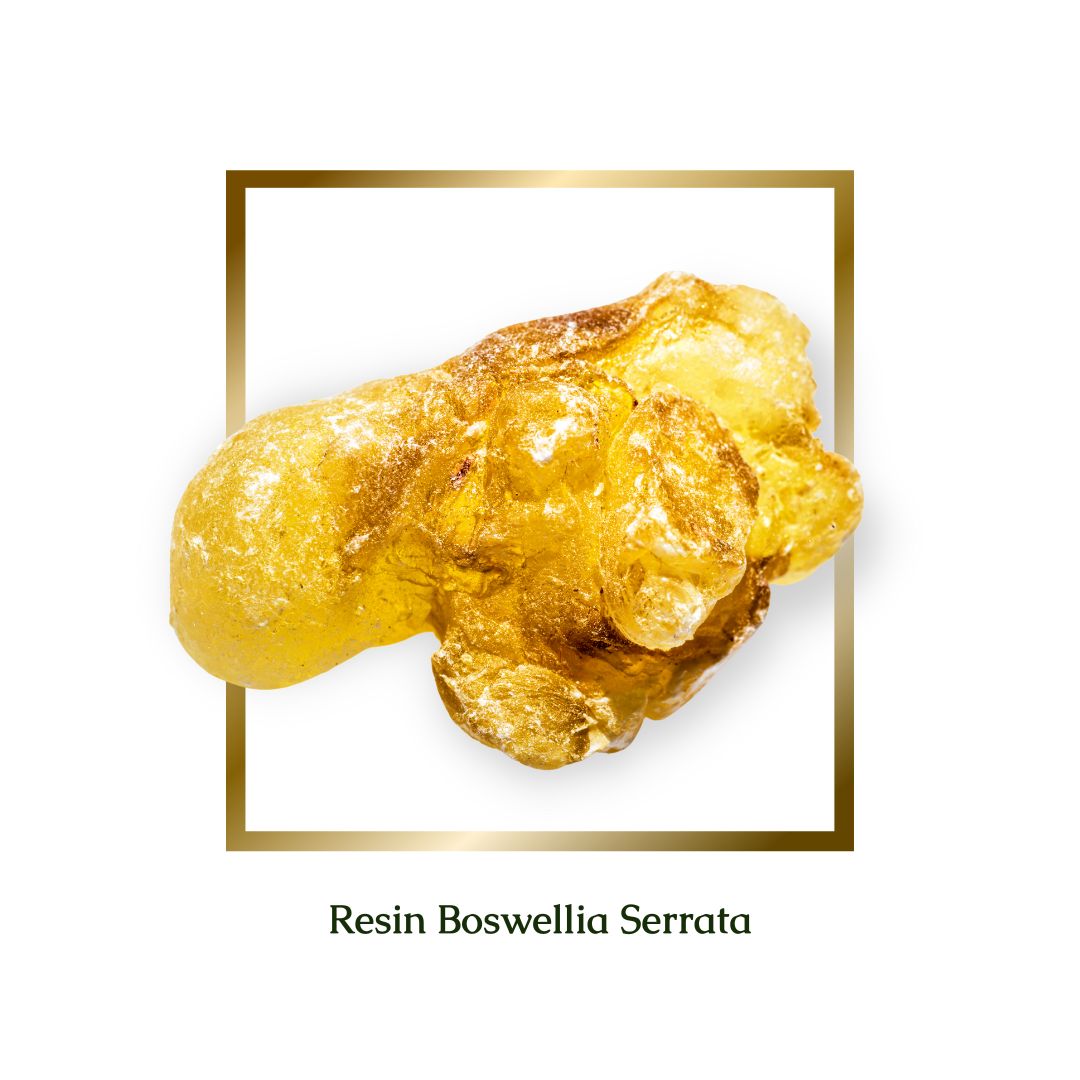
Boswellia (Boswellia Serrata)
Reference: Boswellia Serrata Monograph [Alternative Medicine review Volume 12, Number 2, 2008]
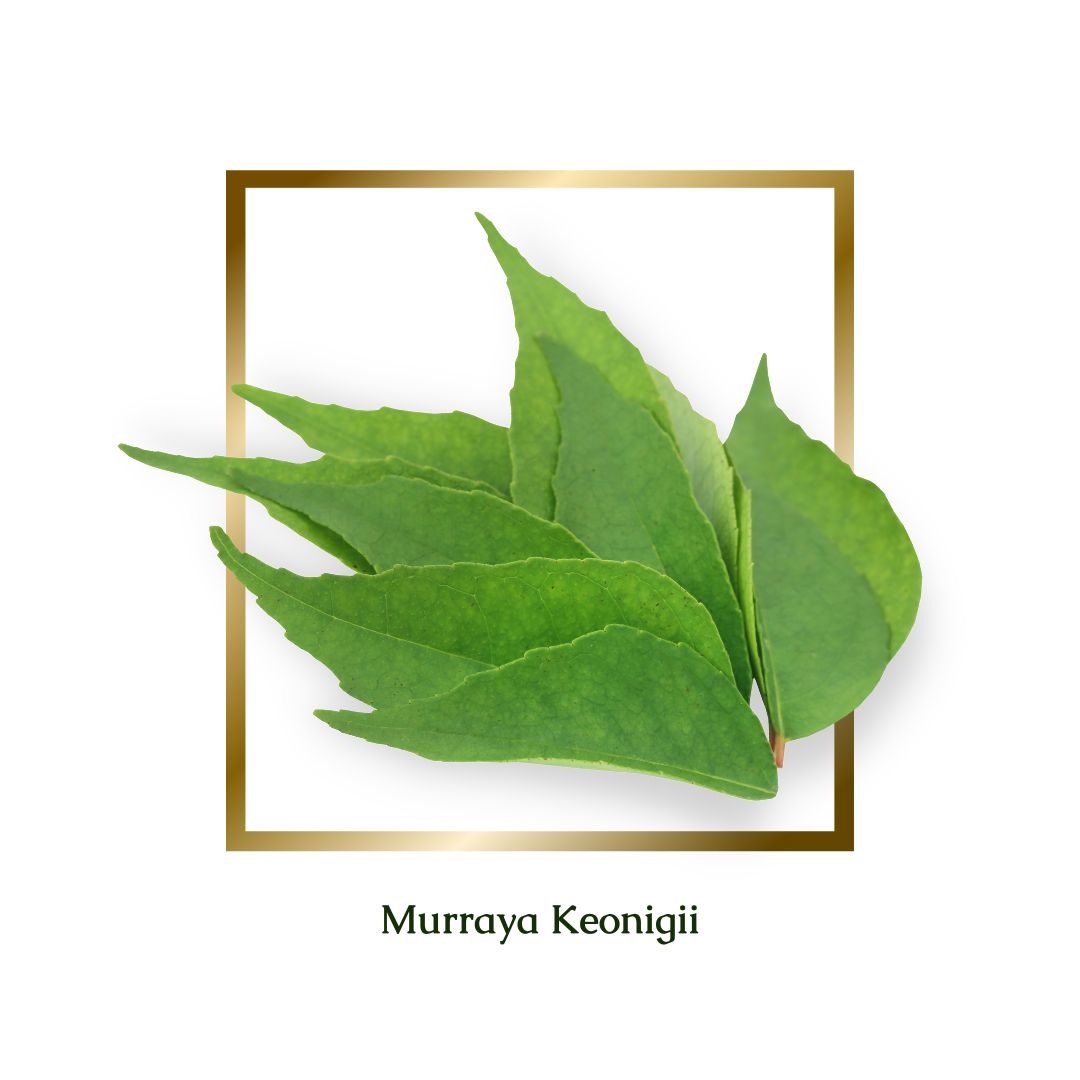
Curry Leaves (Murraya Koenigii)
Reference: Effect of Murraya Koenigii (Curry Leaves) Powder Supplement on Anthropometric and Body Composition Parameters of Hypercholesterolemic Urban Women: A Randomized Control Trial
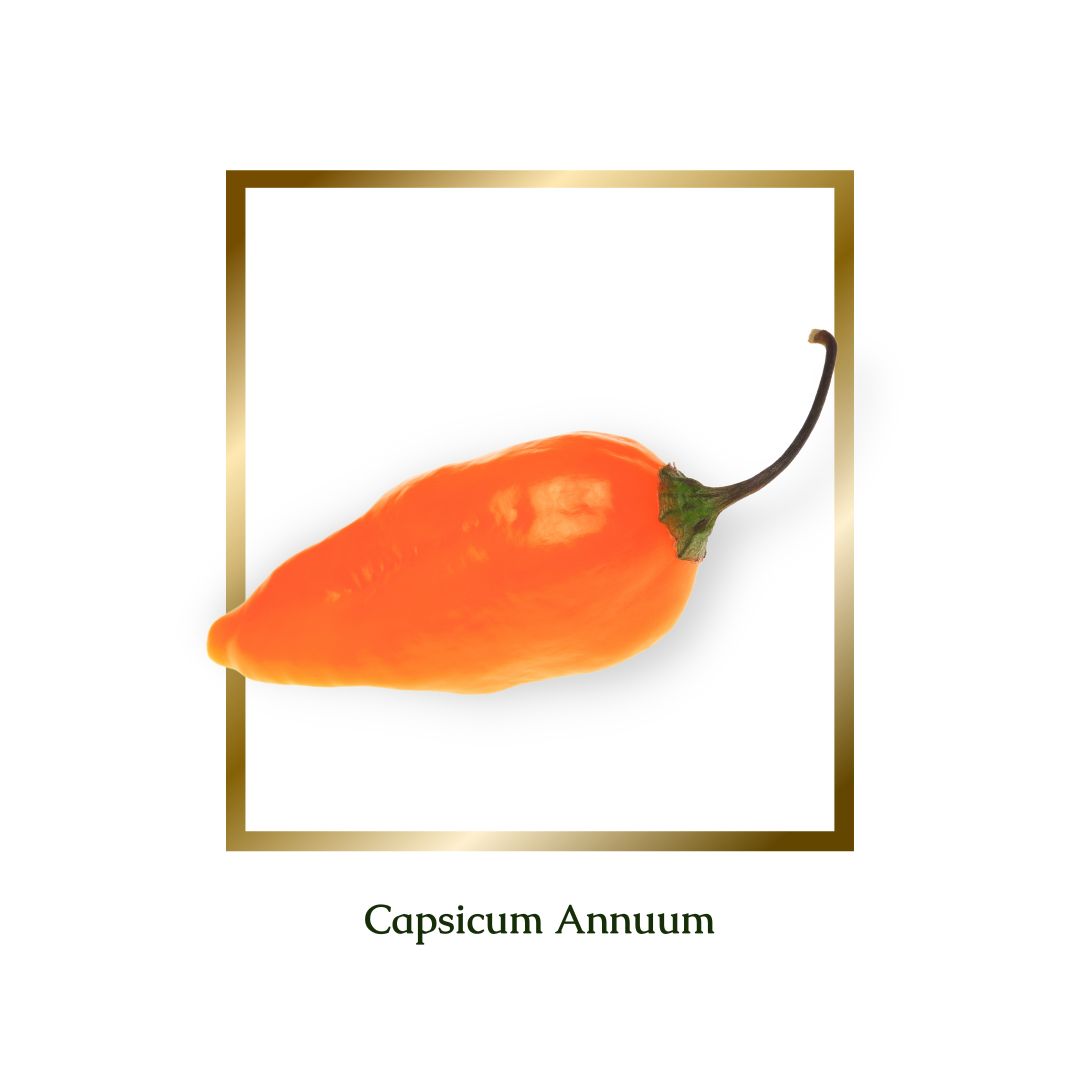
Capsaicin (Capsicum Annuum)
Reference: Dietary capsaicin and its anti-obesity potency: from mechanism to clinical implications

Bitter Melon (Mormodica Chrantia)
Reference: Antidiabetic Effects of Momordica Charantia (Bitter Melon) And Its Medicinal Potency
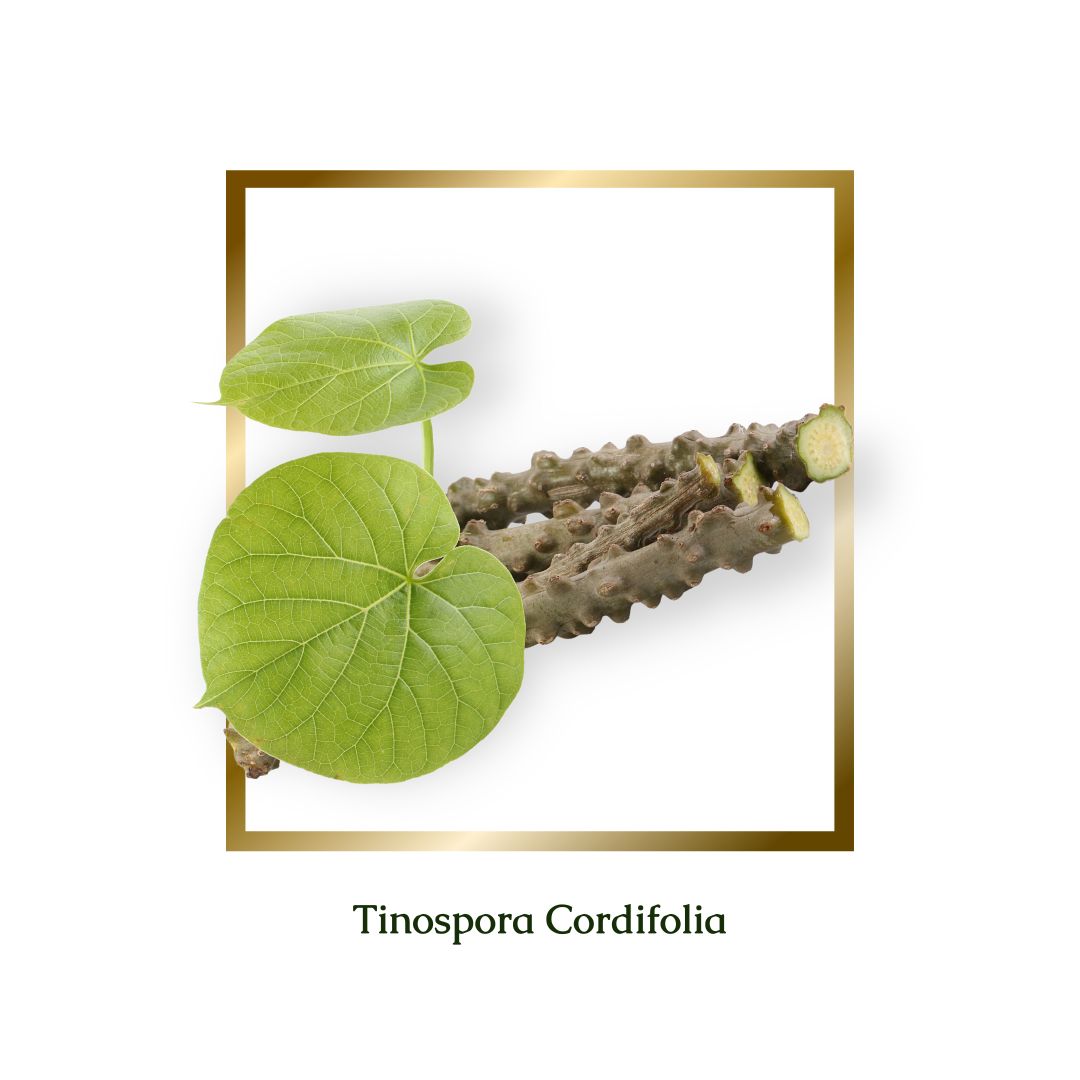
Heart-Leaved Moonseed (Tinospora Cordifiolia)
Reference: A Clinical Trial to Assess the Antidiabetic, Antidyslipidemic and Antioxidant Activities of Tinospora Cordifolia in Management of Type – 2 Diabetes Mellitus
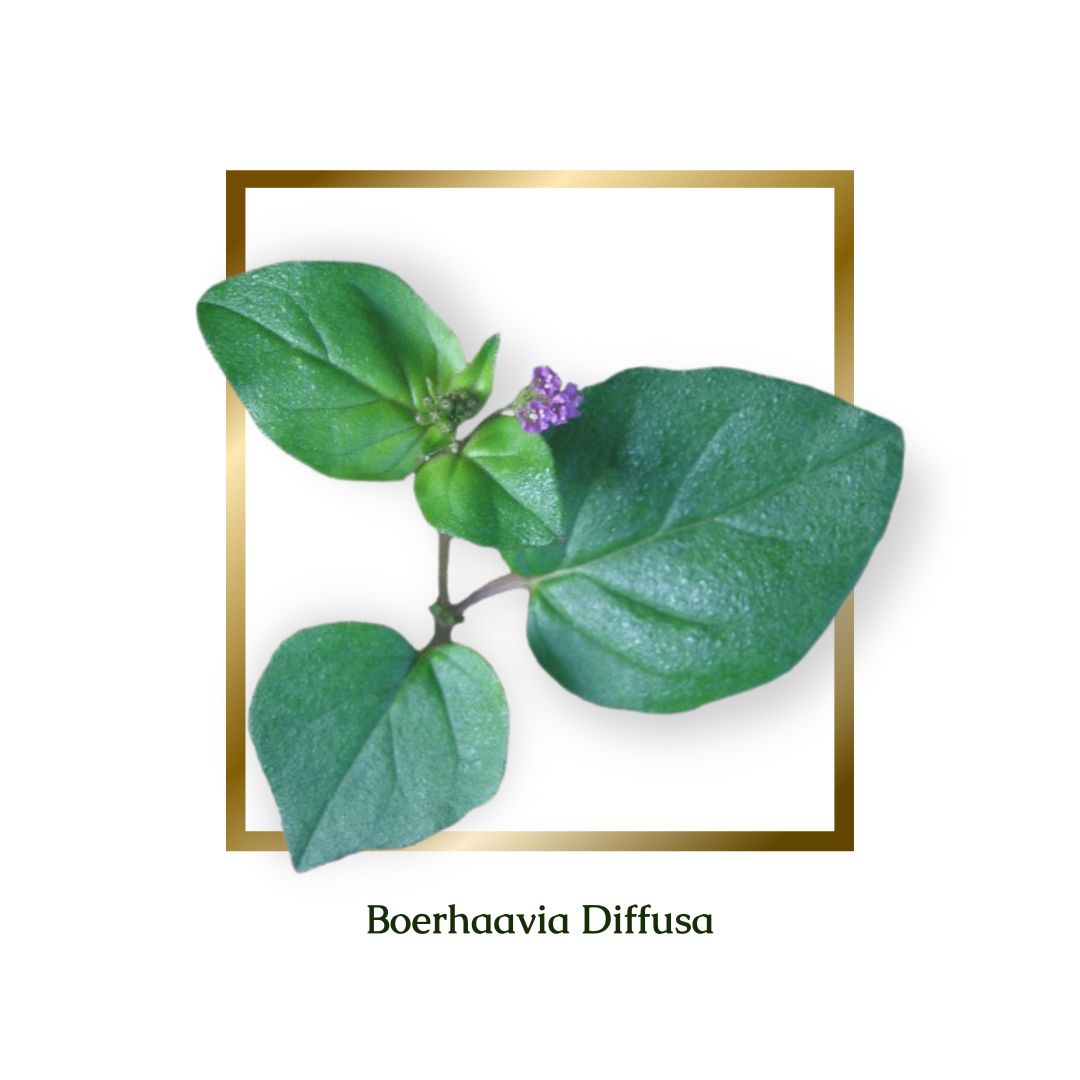
Red Spiderling (Boerhaavia Diffusia)
Reference: Boerhaavia Diffusa Inhibits Key Enzymes Linked to Type 2 Diabetes In Vitro And In Silico; And Modulates Abdominal Glucose Absorption And Muscle Glucose Uptake Ex Vivo
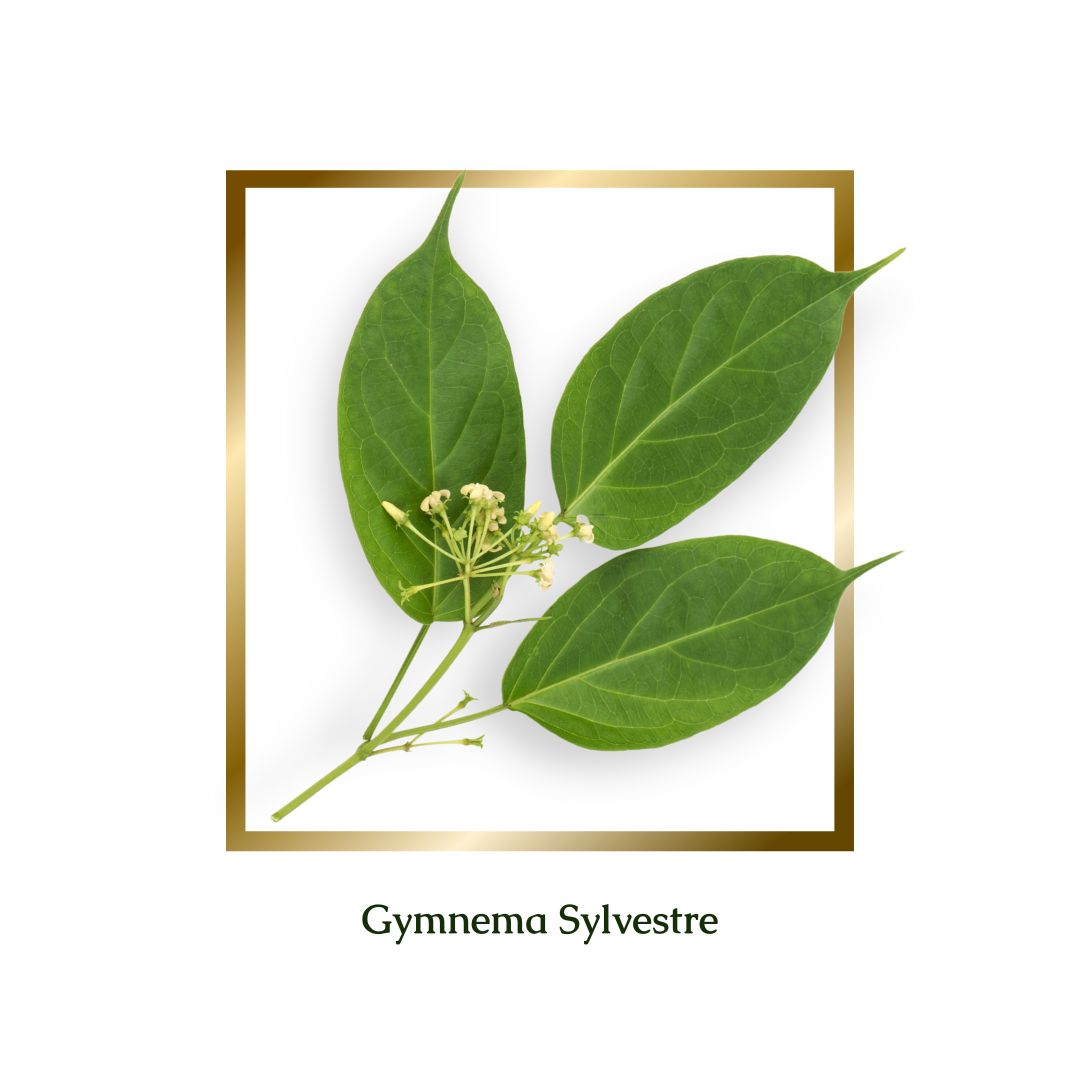
Australian Cowplant (Gymnema Sylvestre)
Reference: Clinical Applications of Gymnema Sylvestre Against Type 2 Diabetes Mellitus And Its Associated Abnormalities

Fenugreek (Trigonella Foenum-Graecum)
Reference: A Simple Dietary Addition of Fenugreek Seed Leads To The Reduction In Blood Glucose Levels: A Parallel Group, Randomized Single-blind Trial
